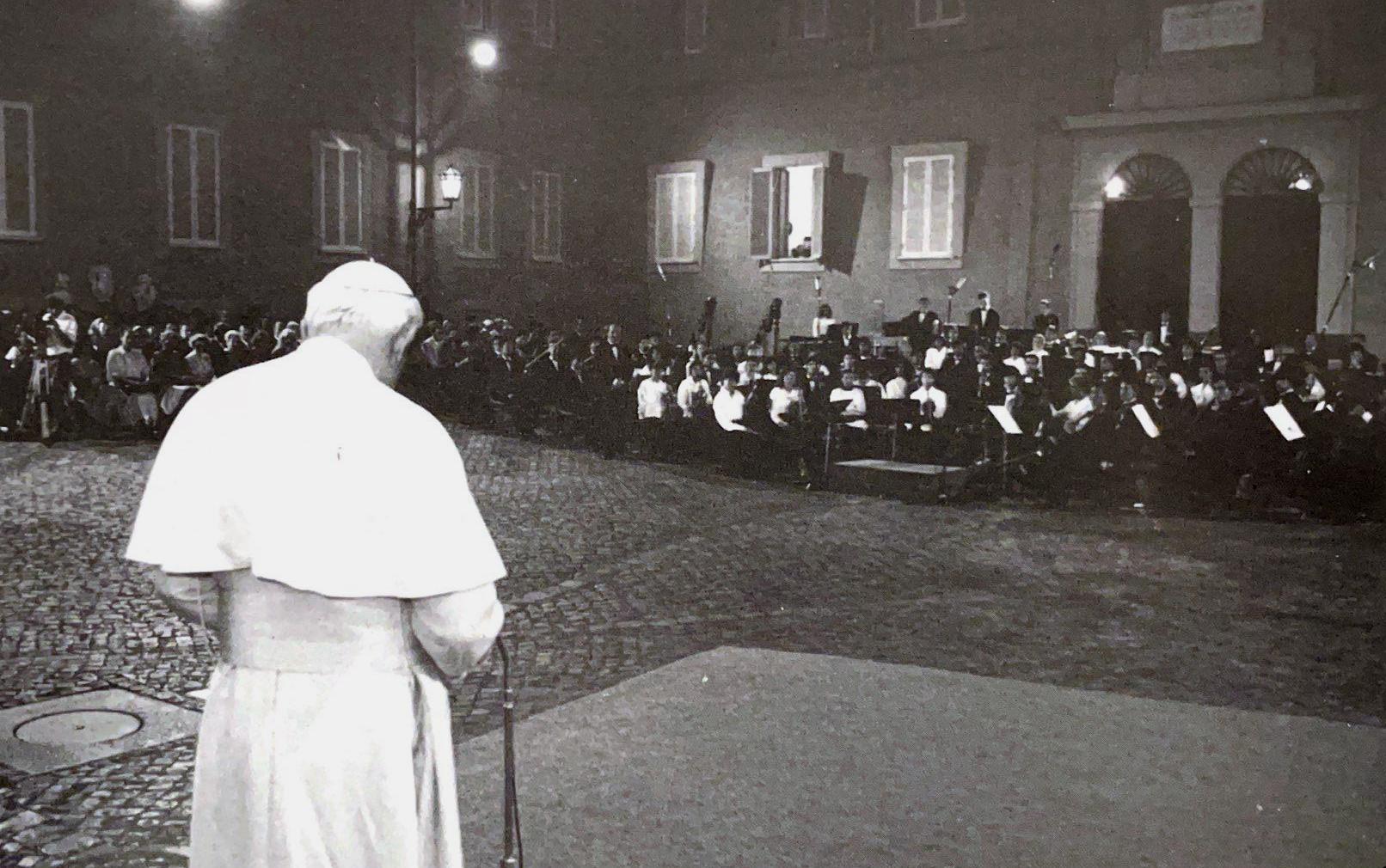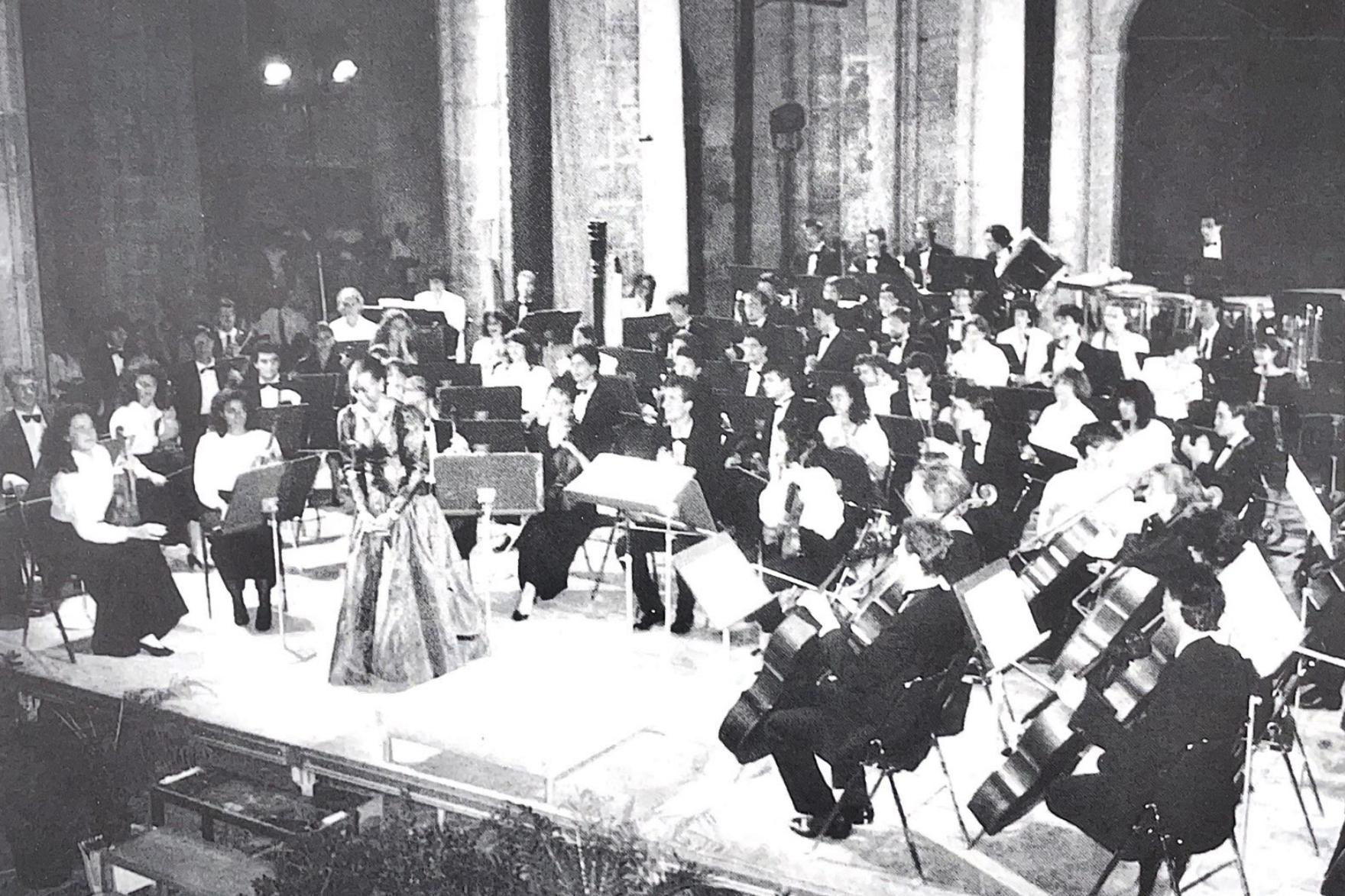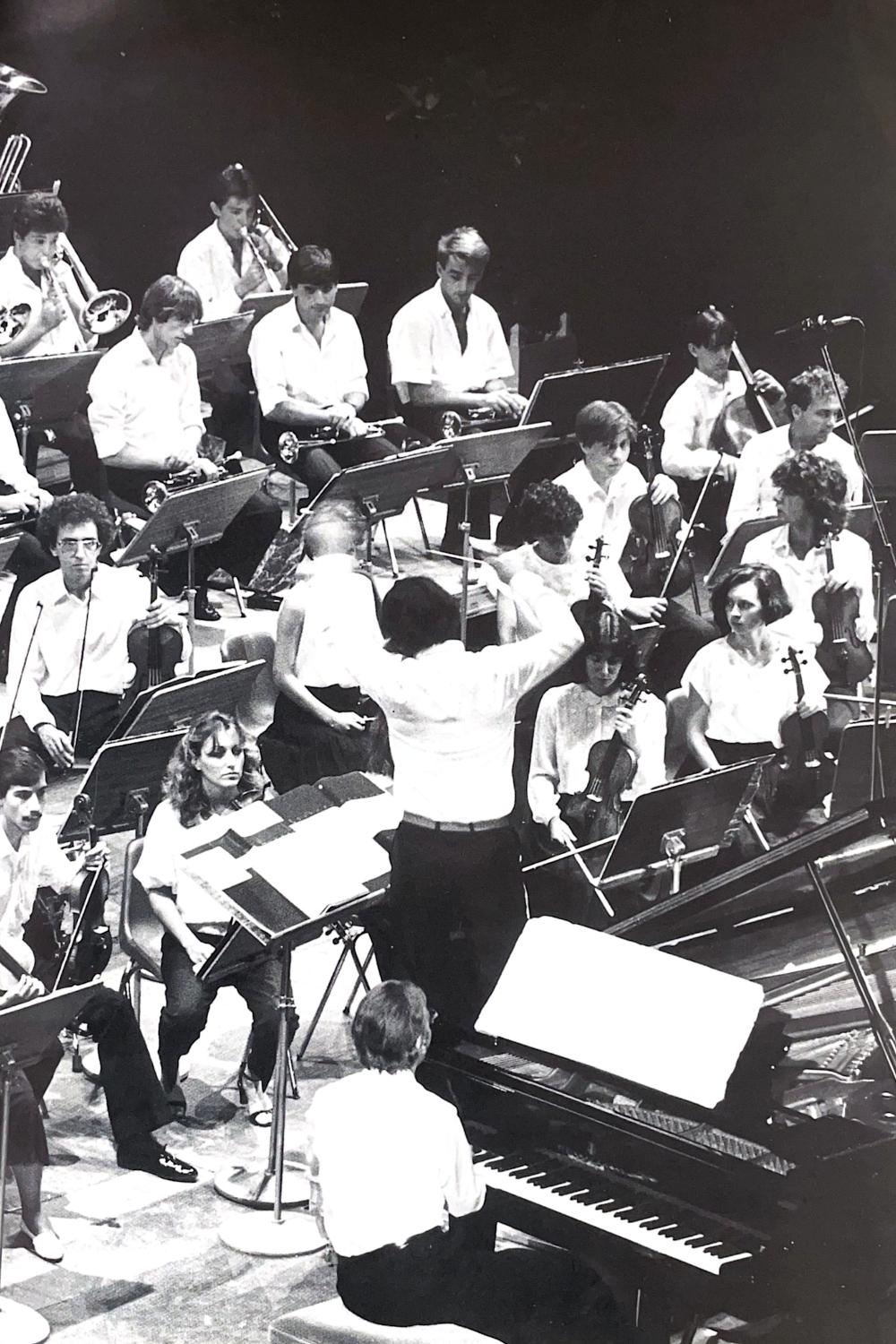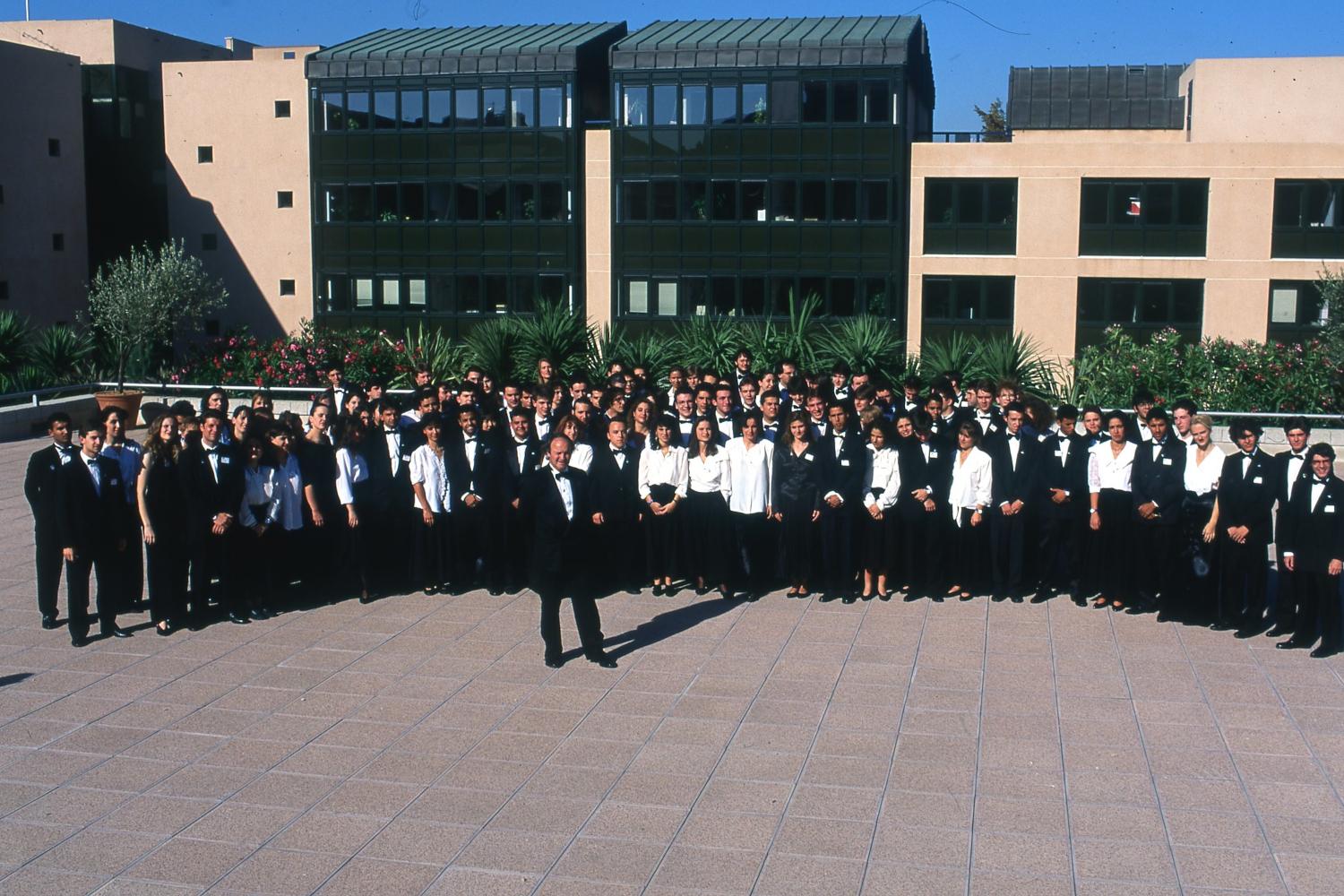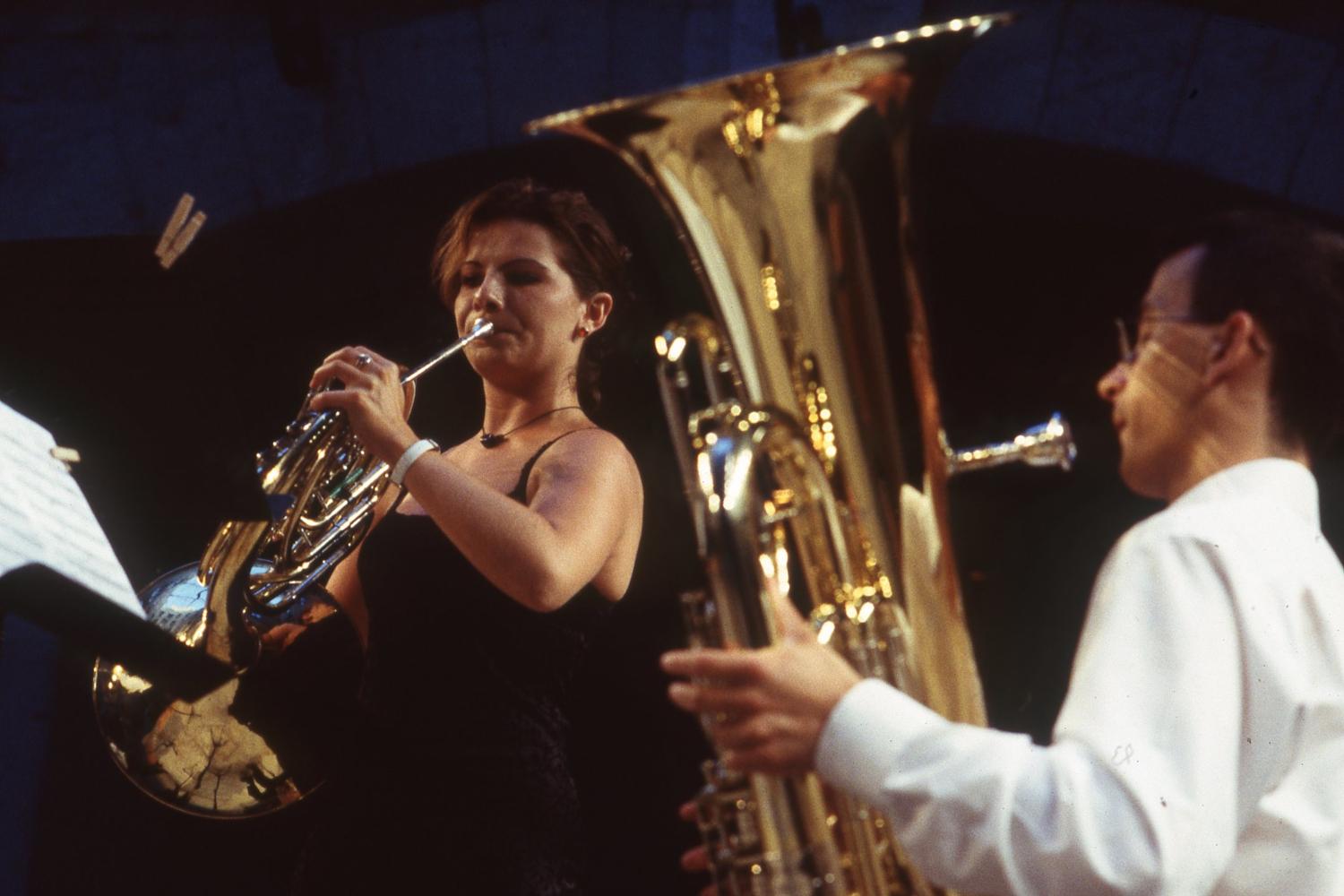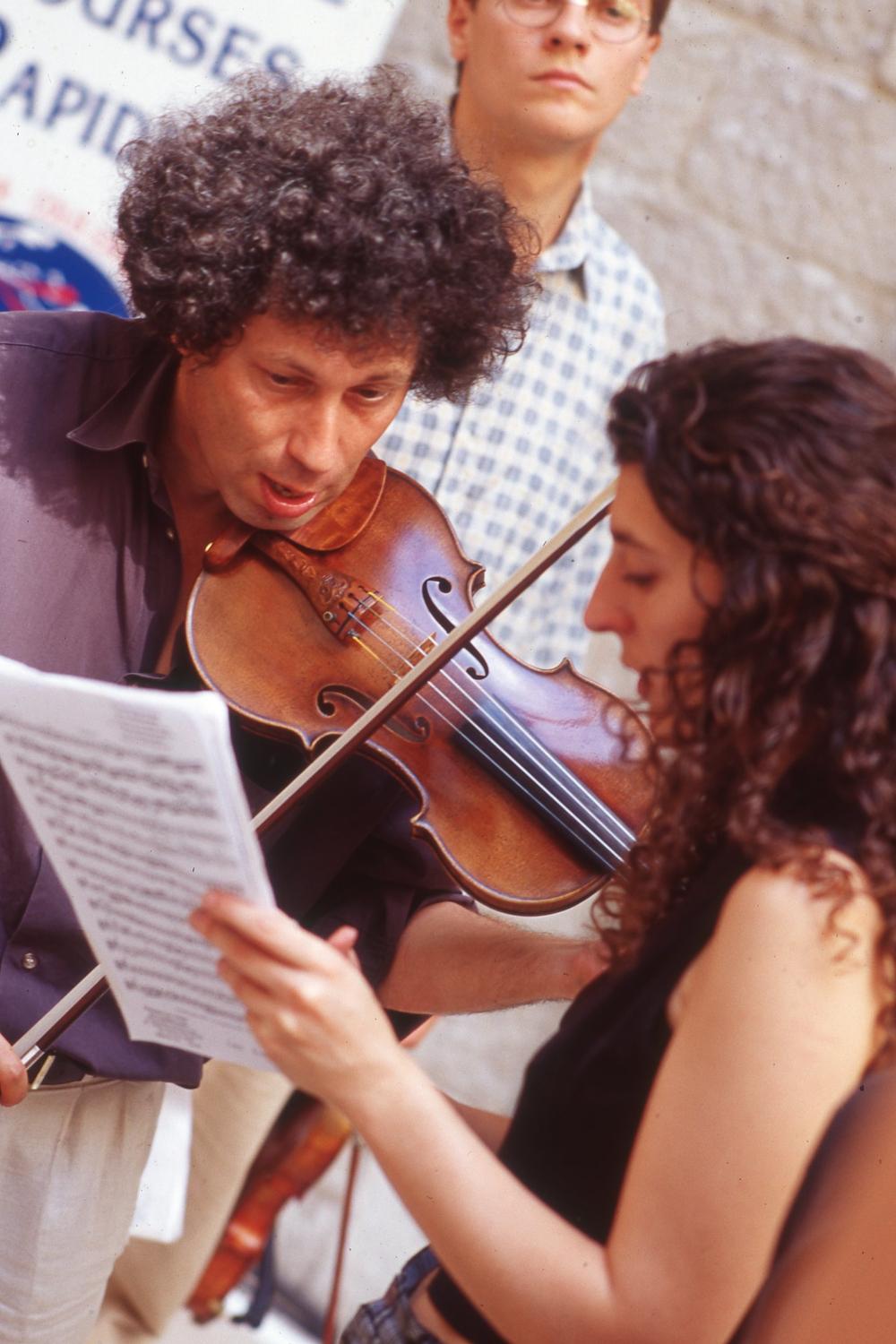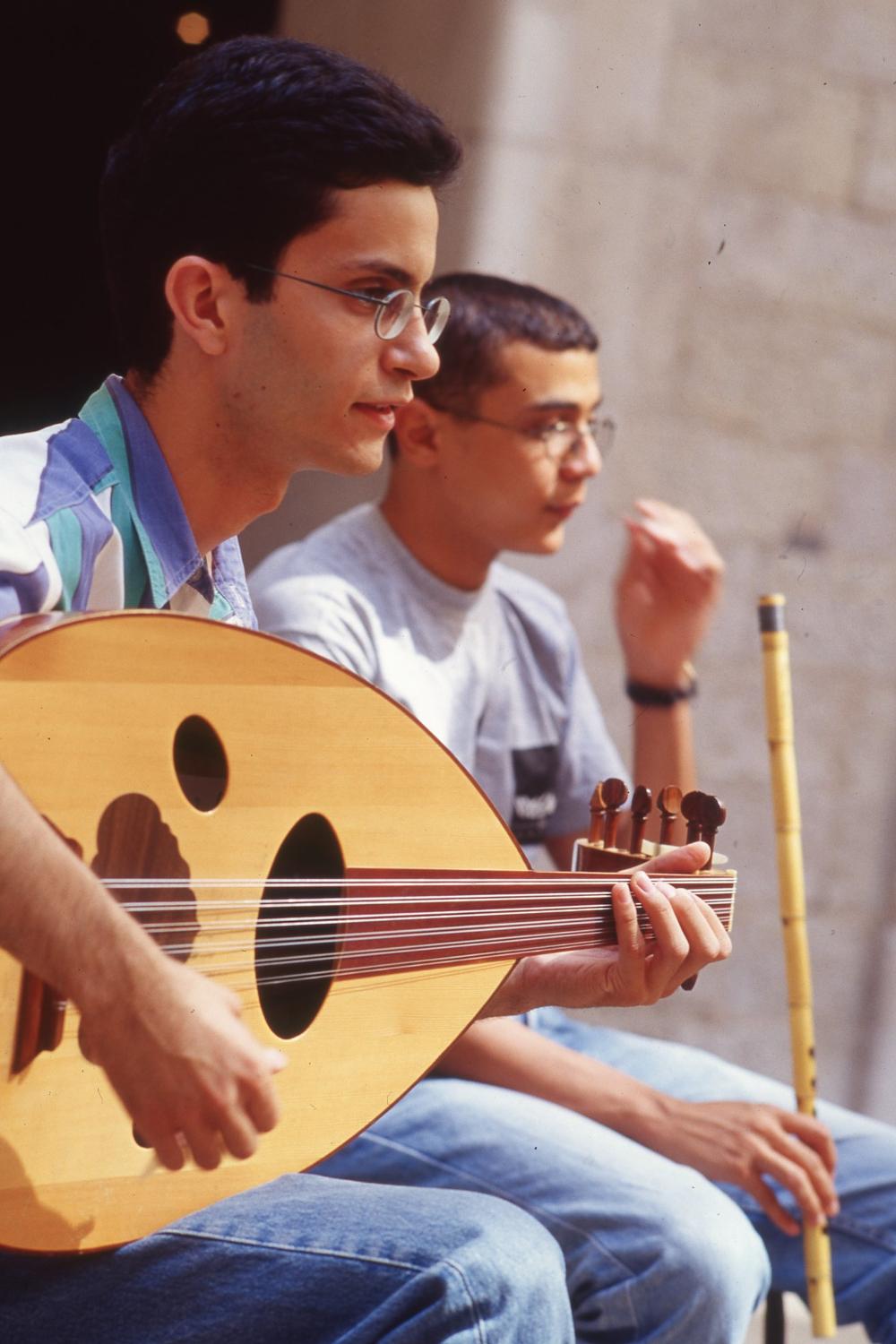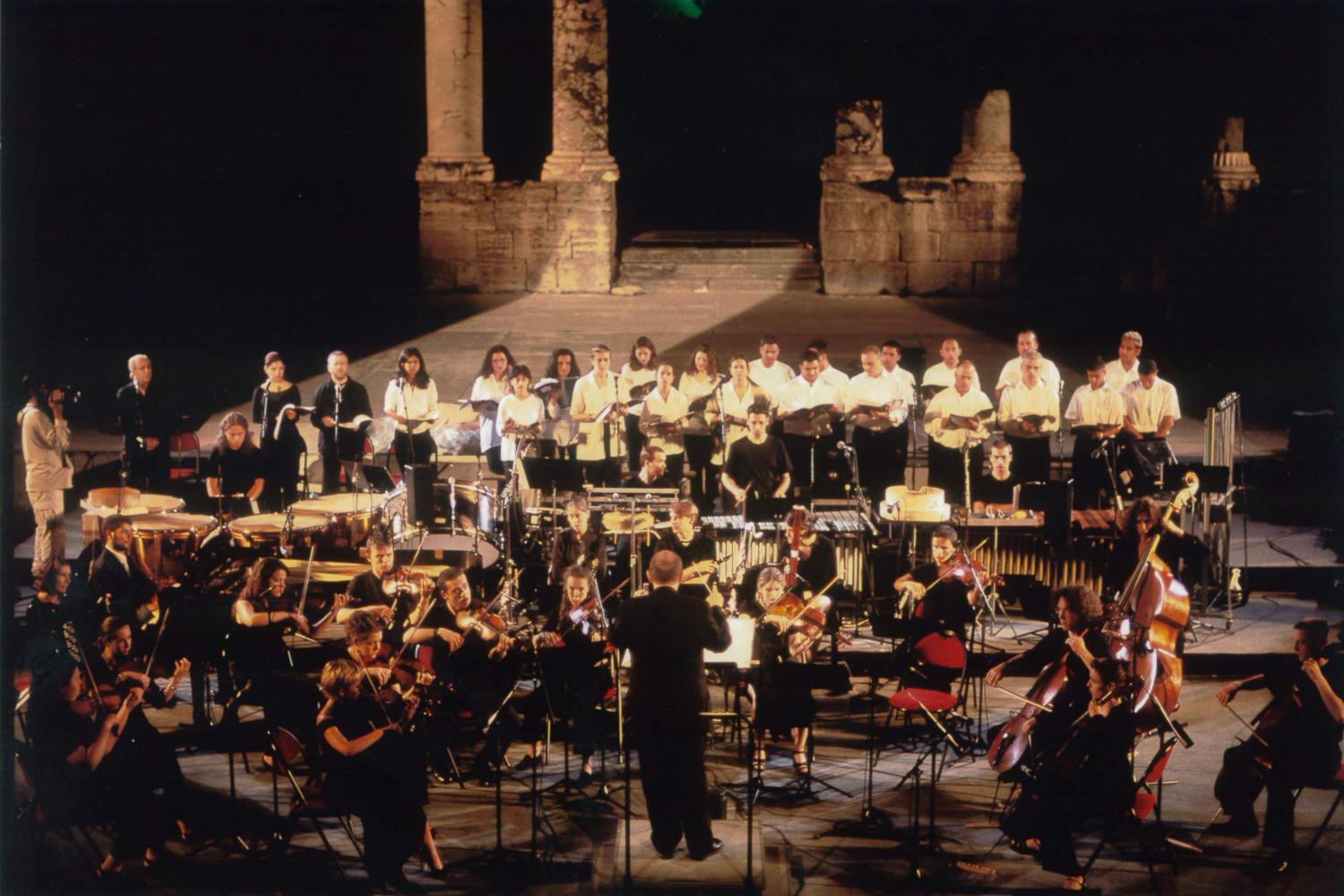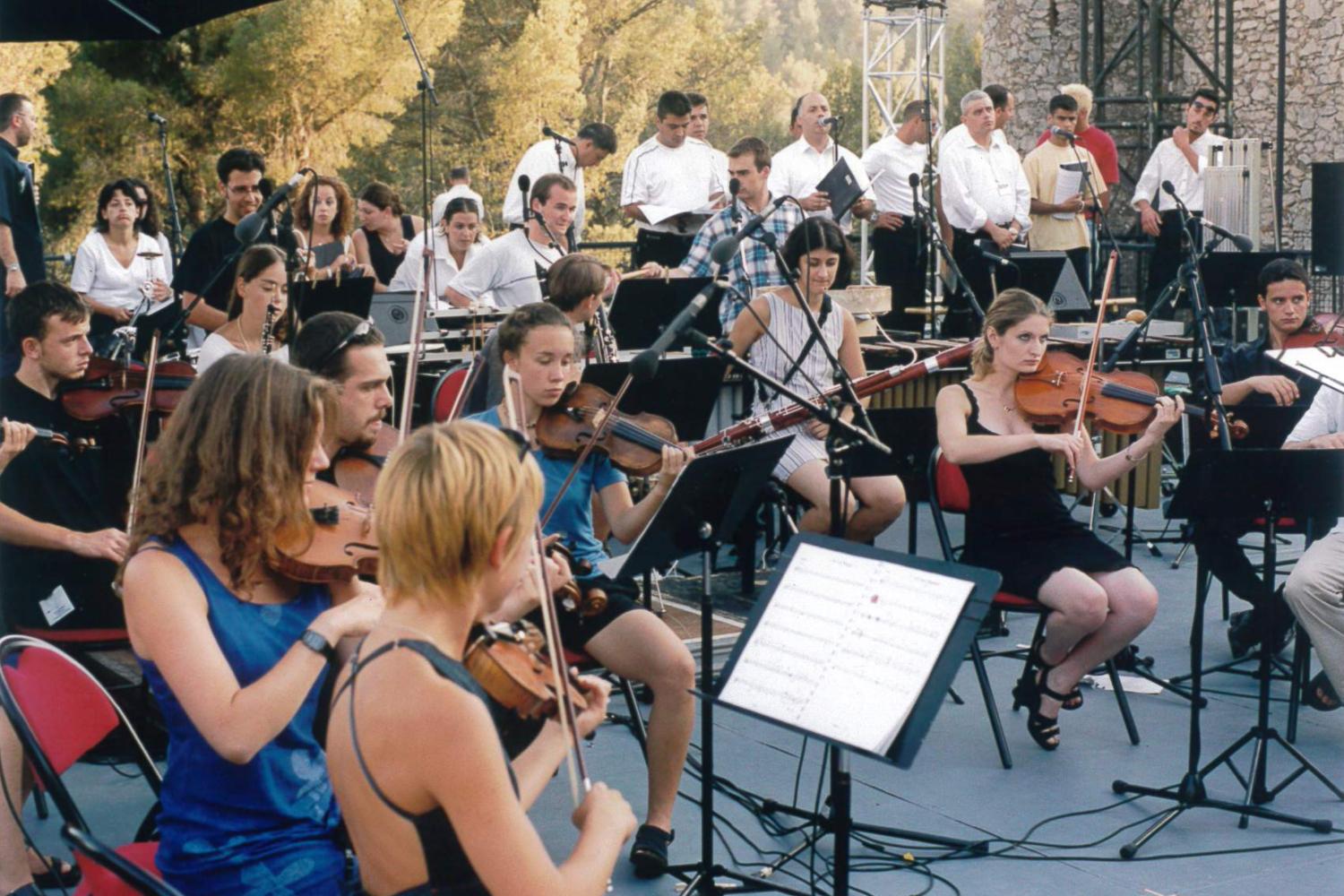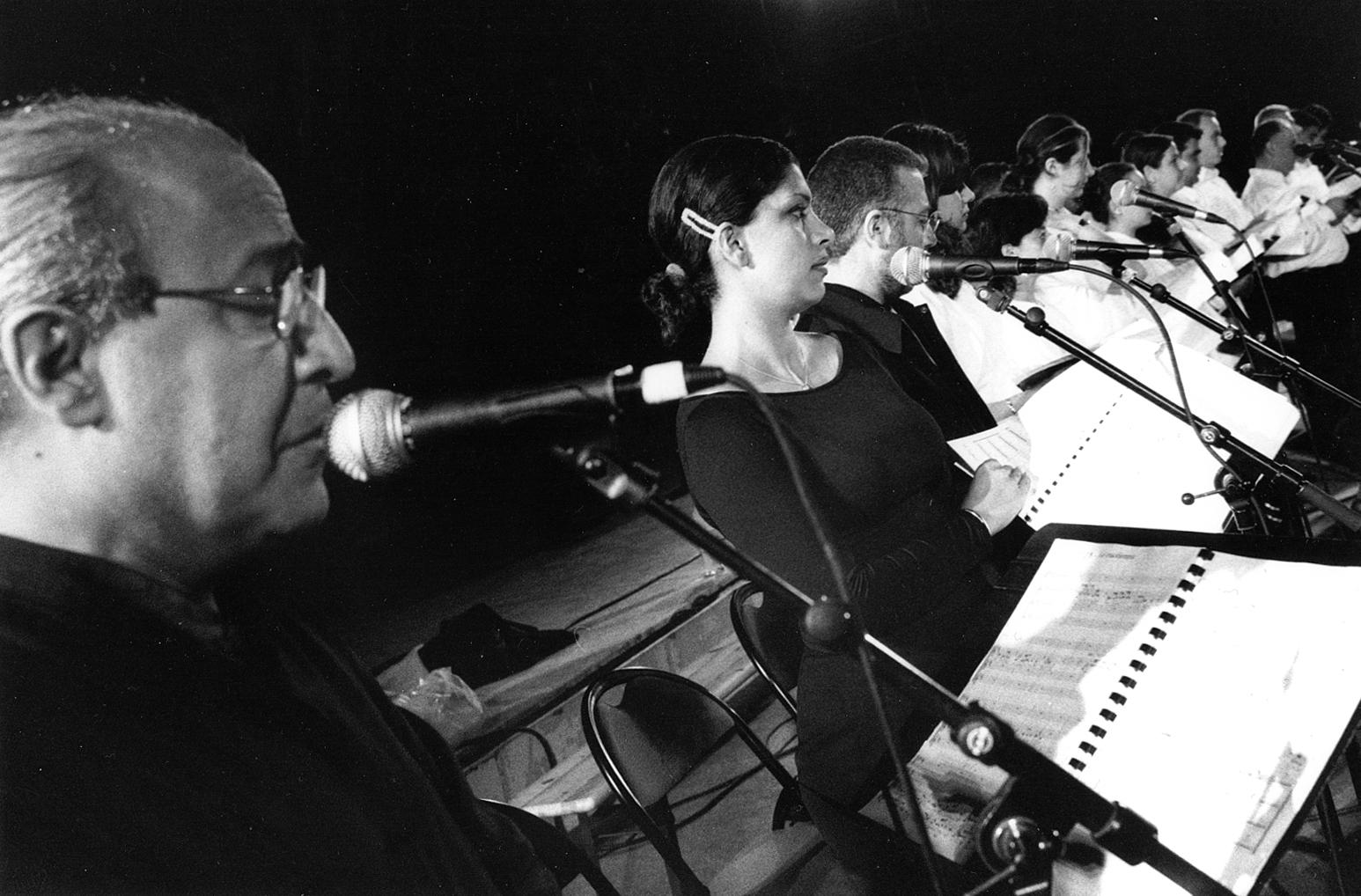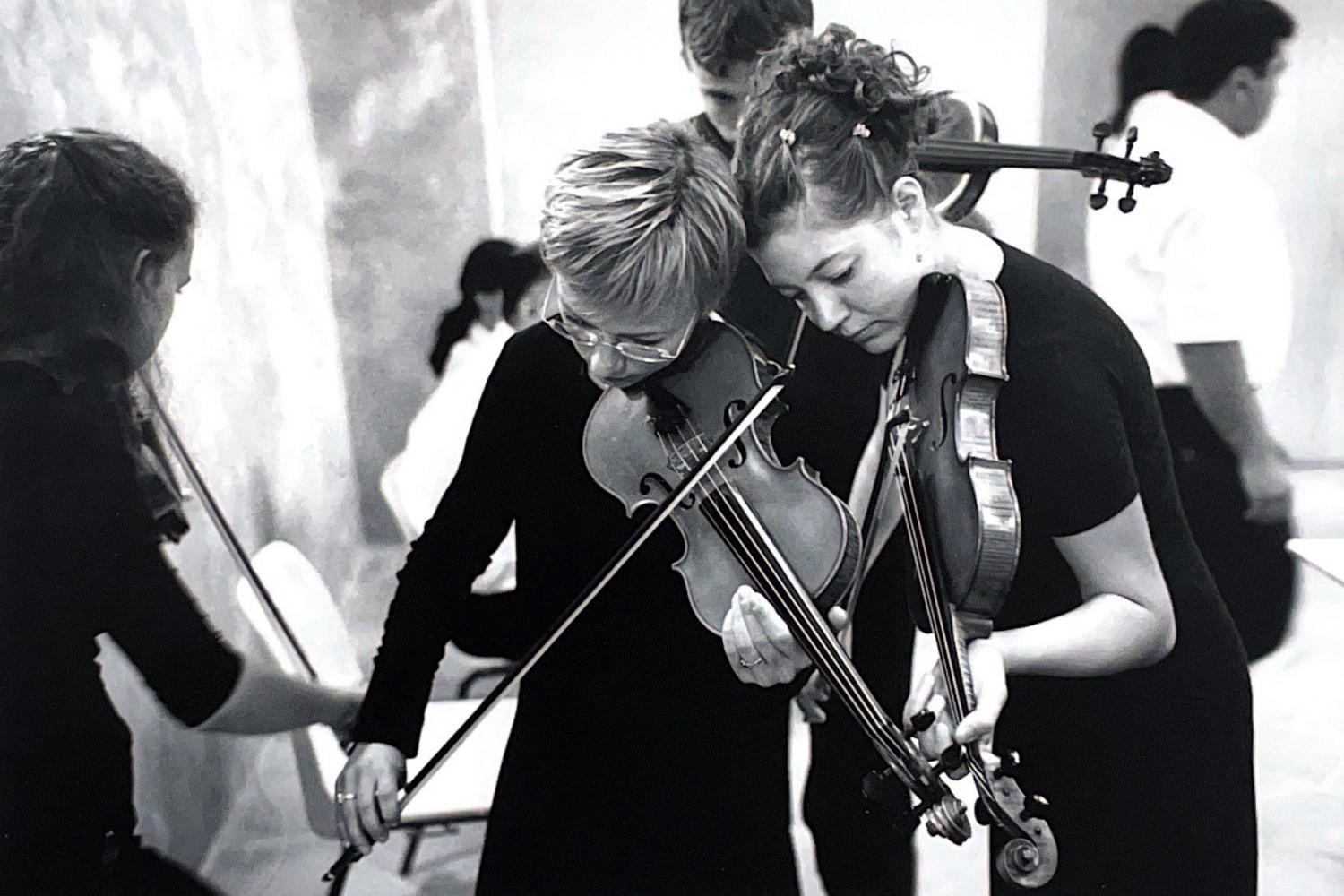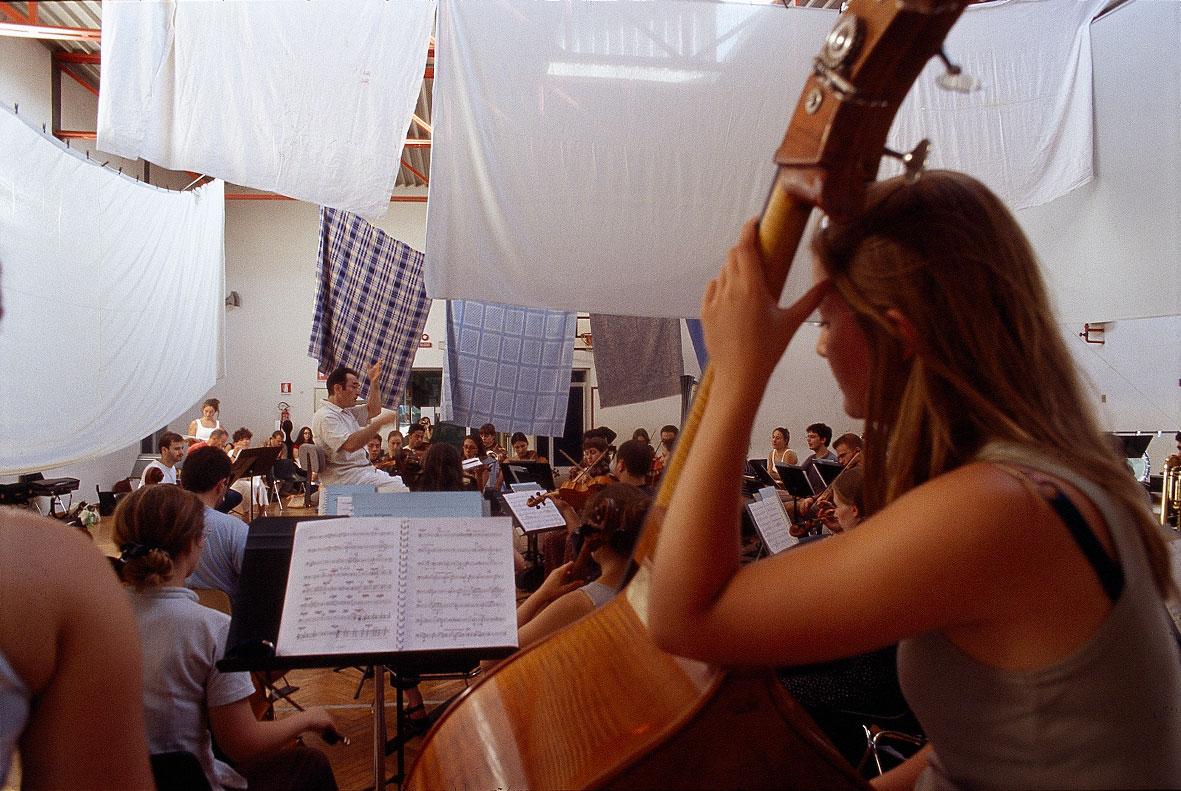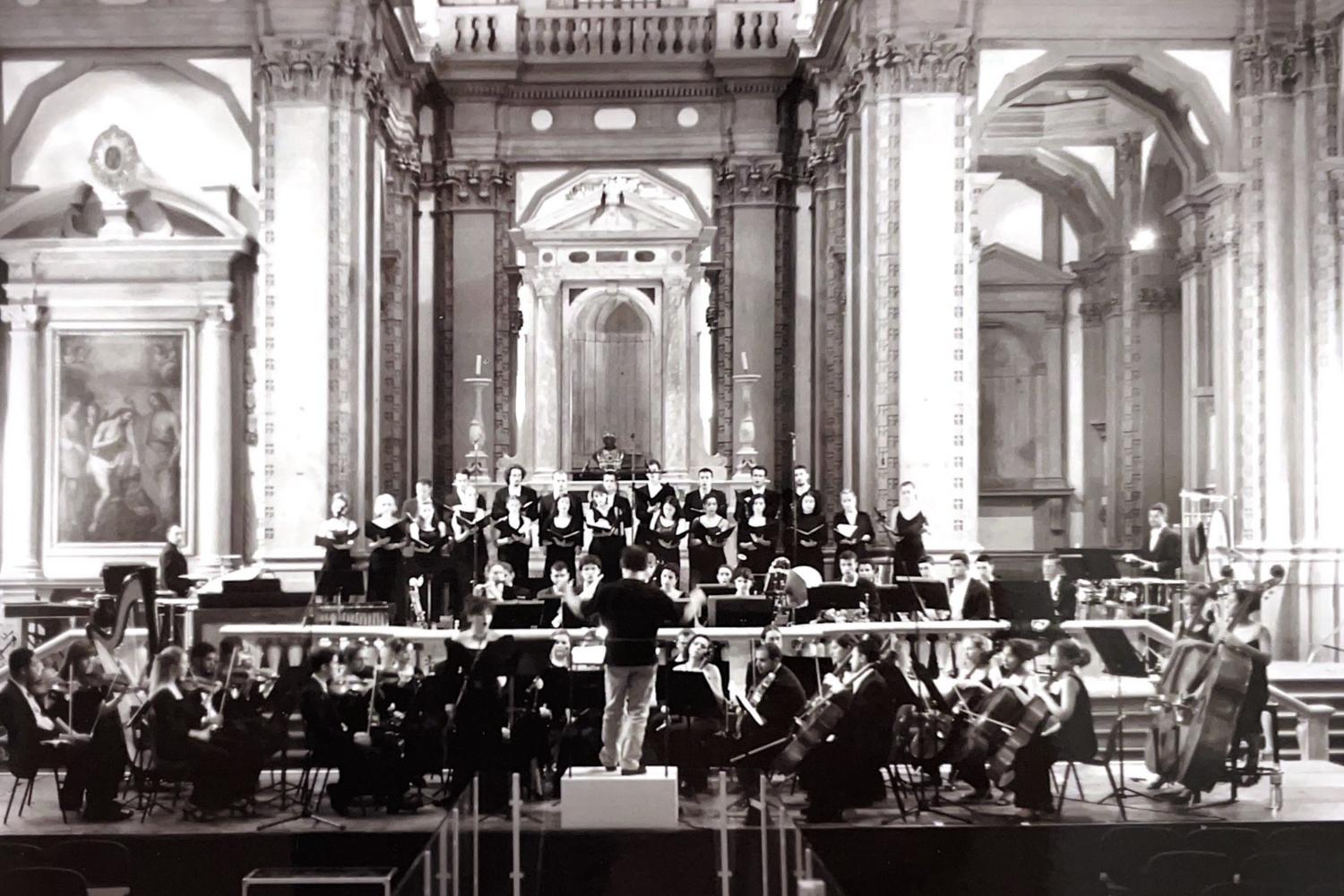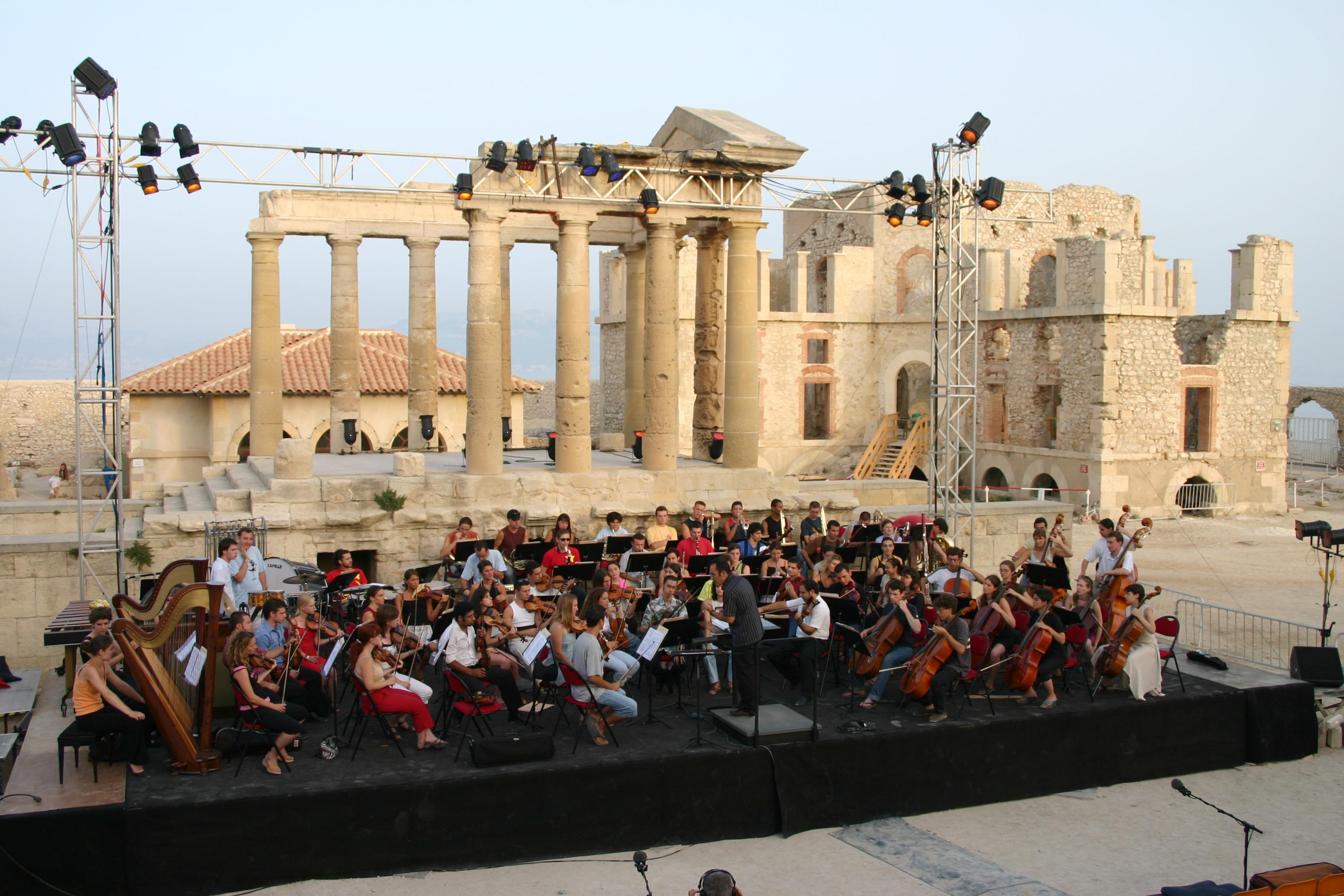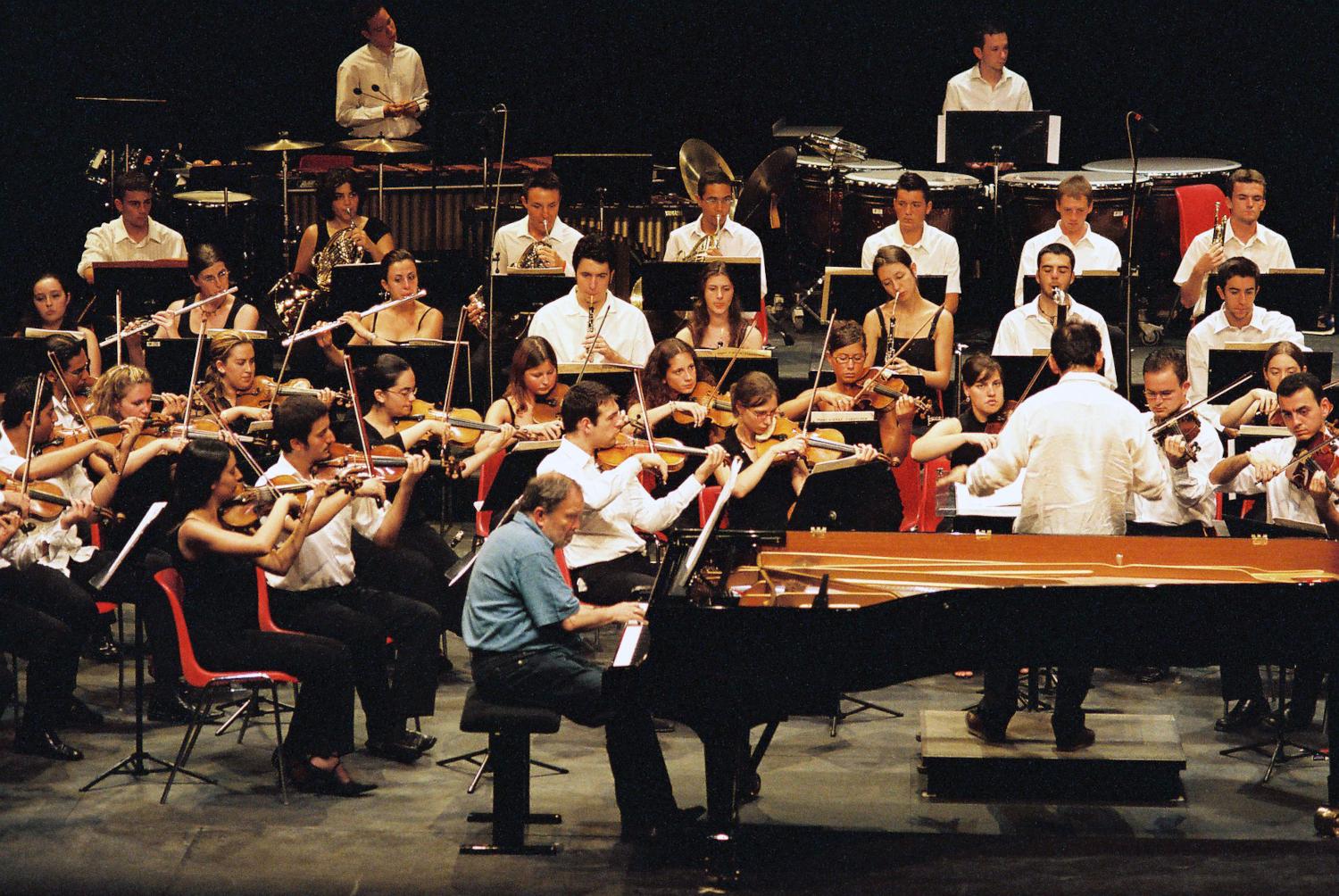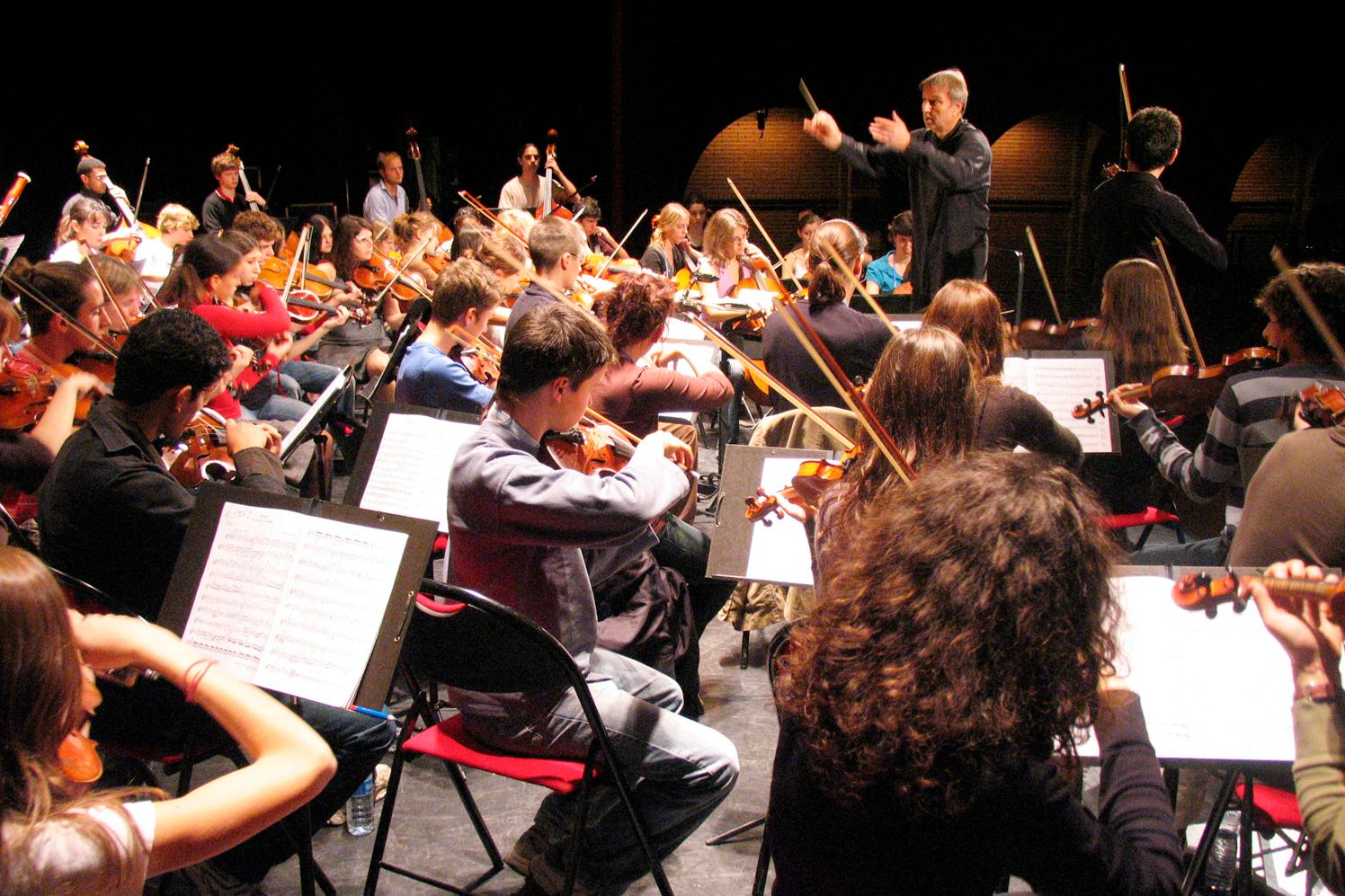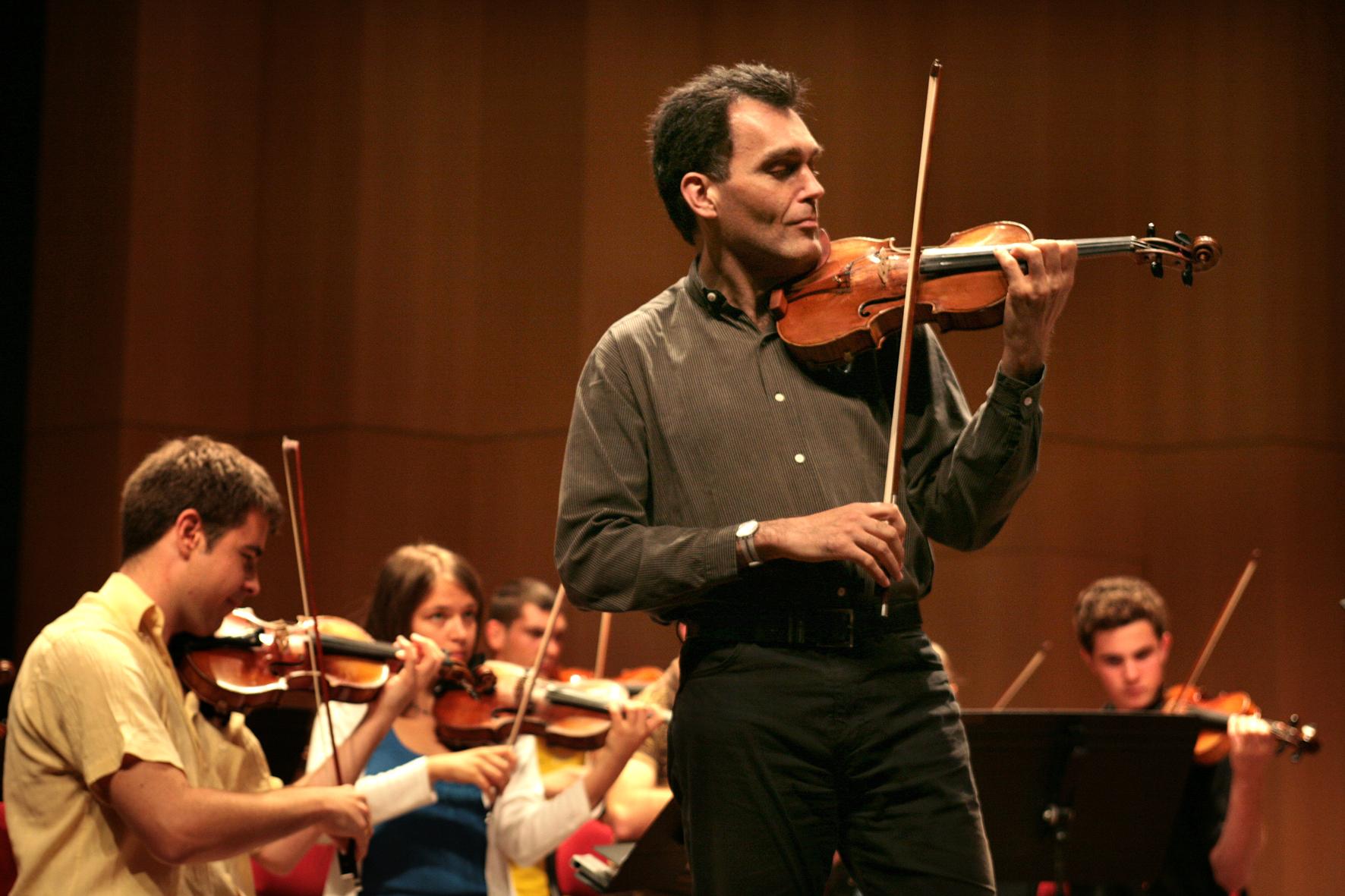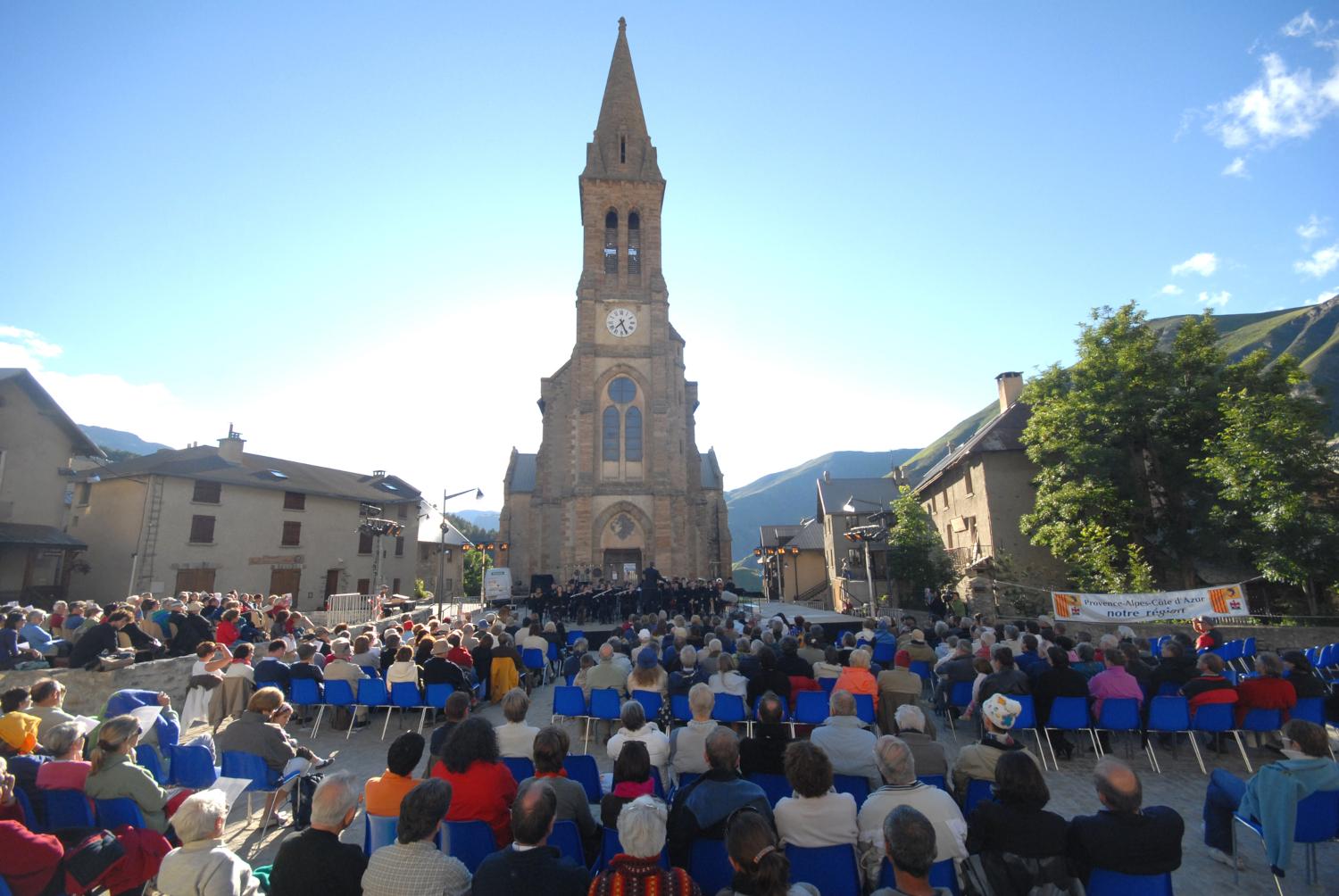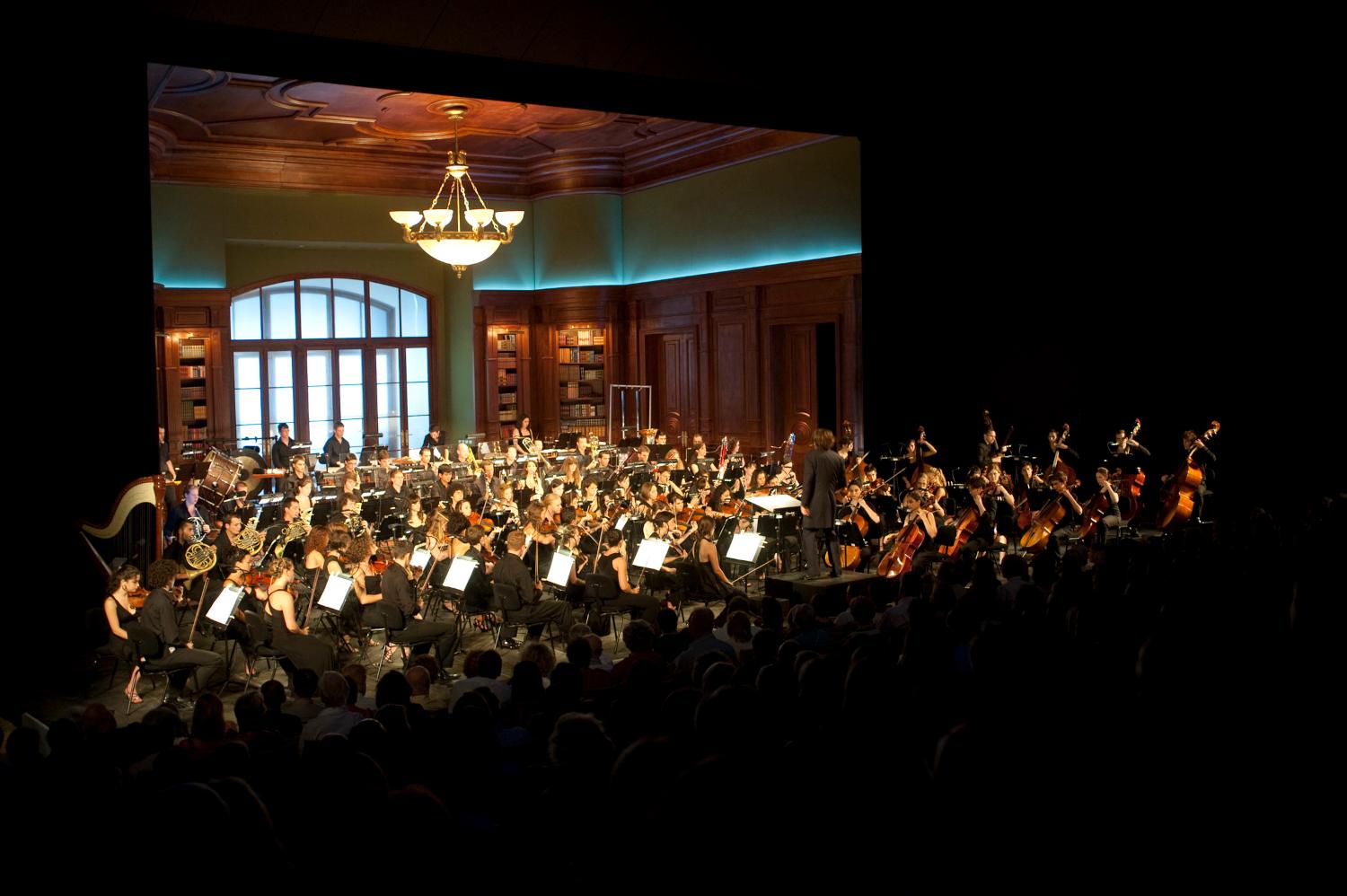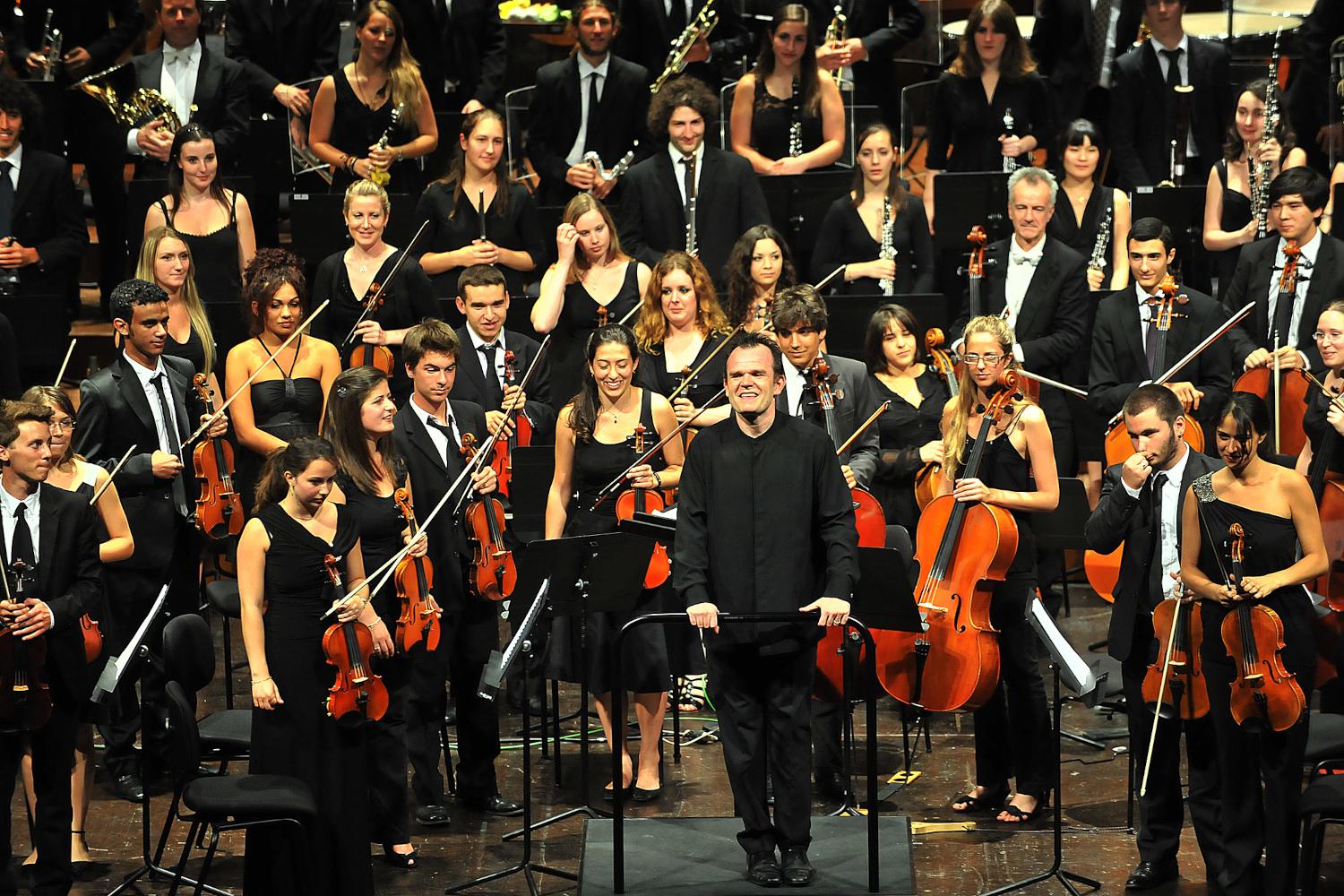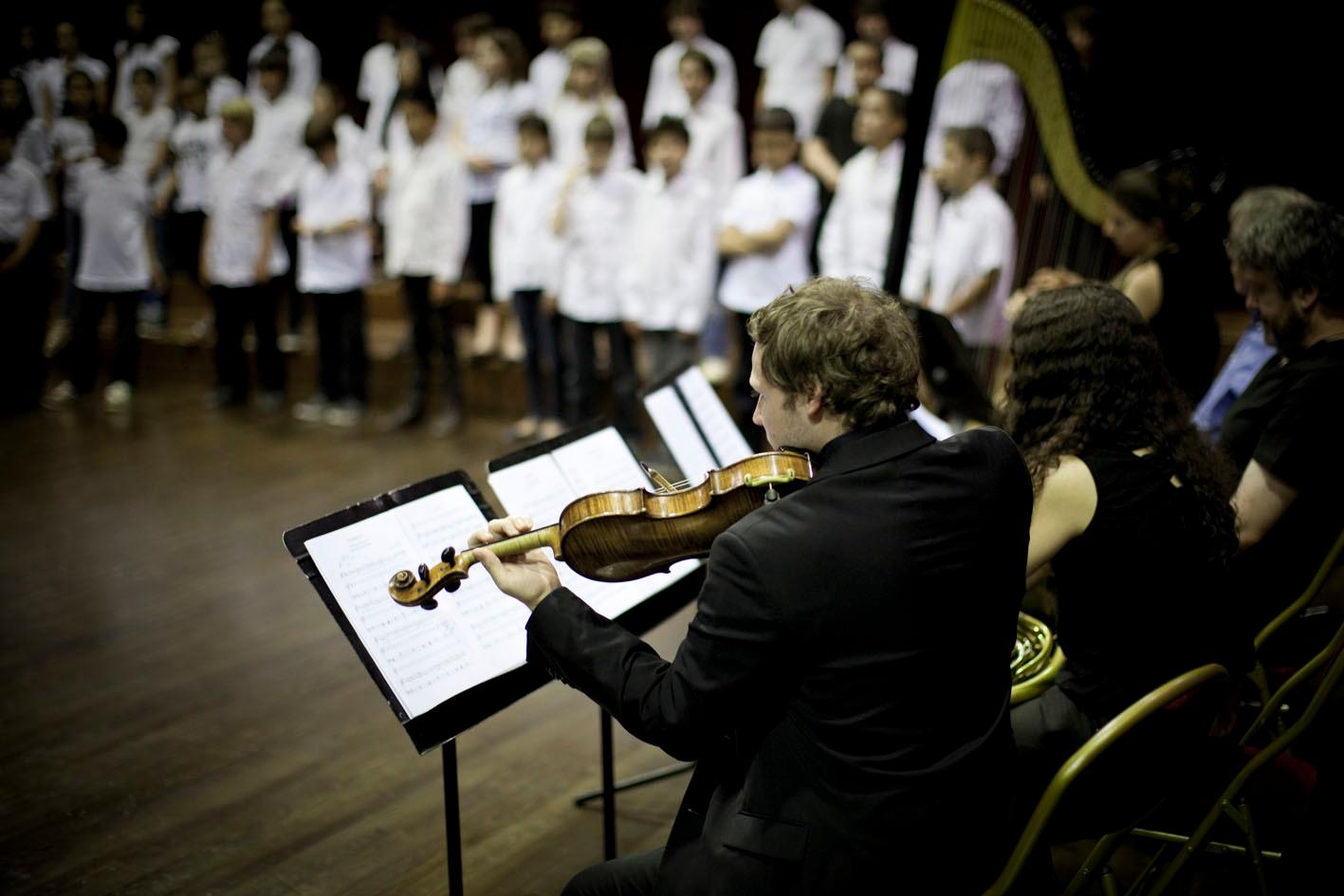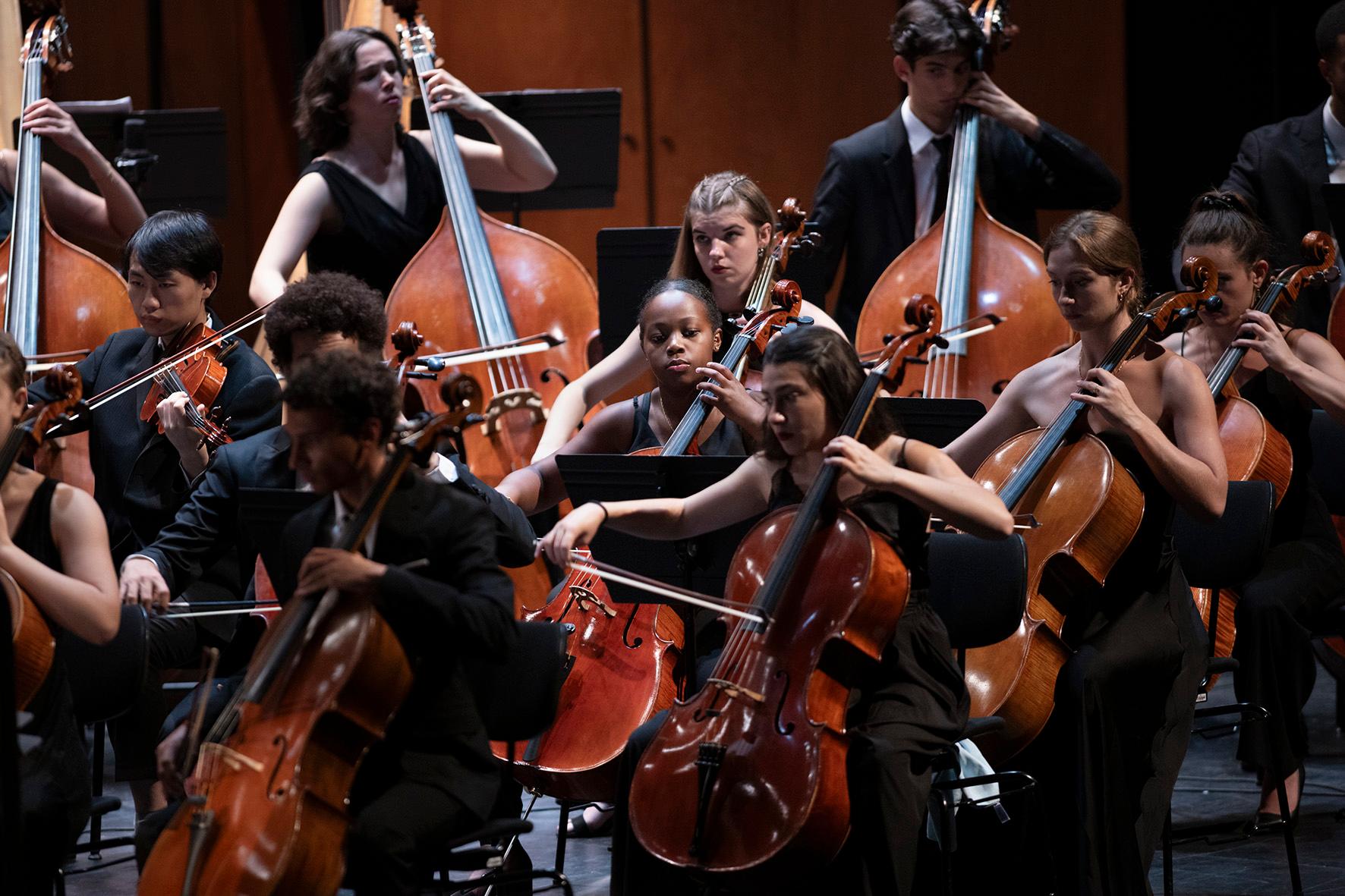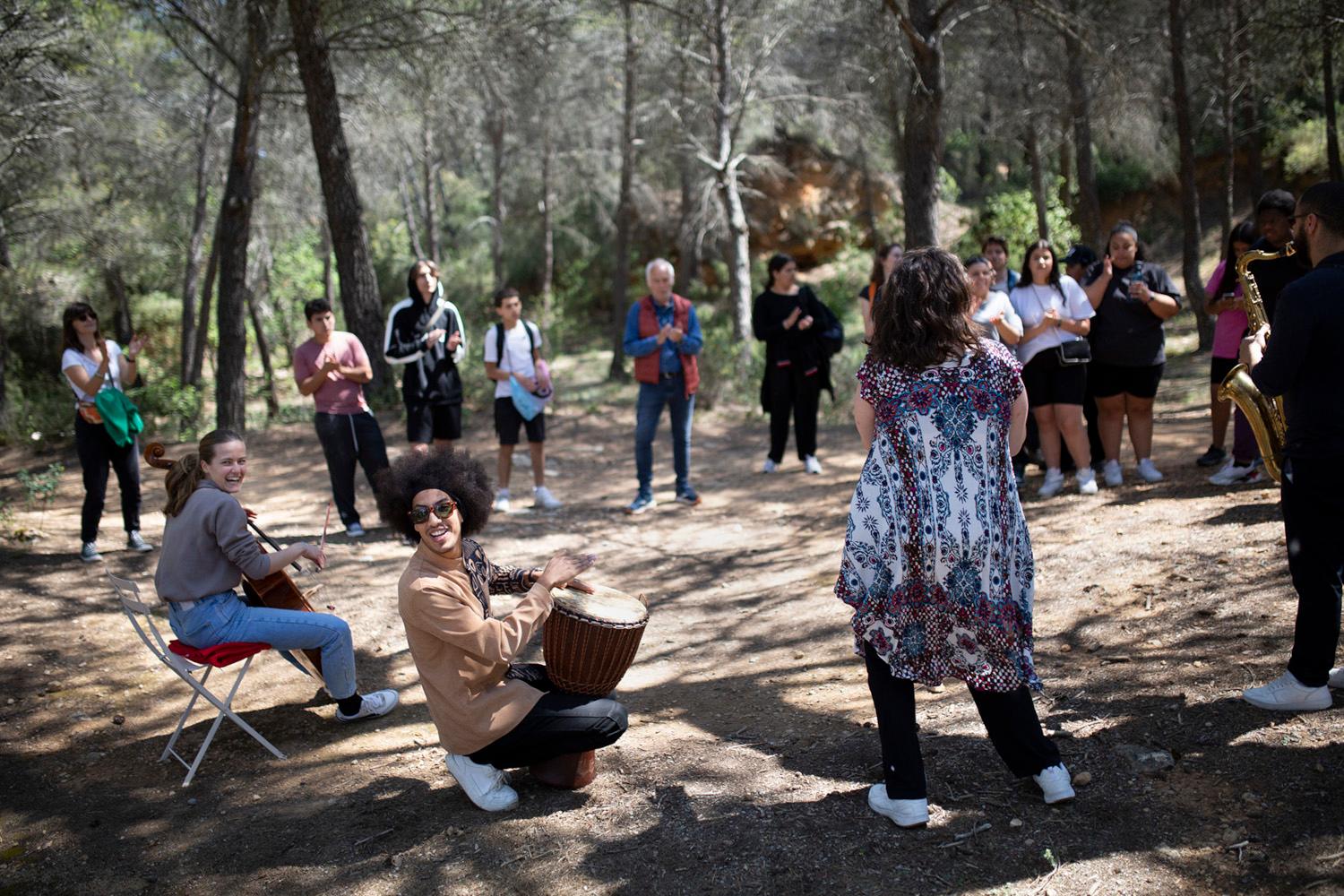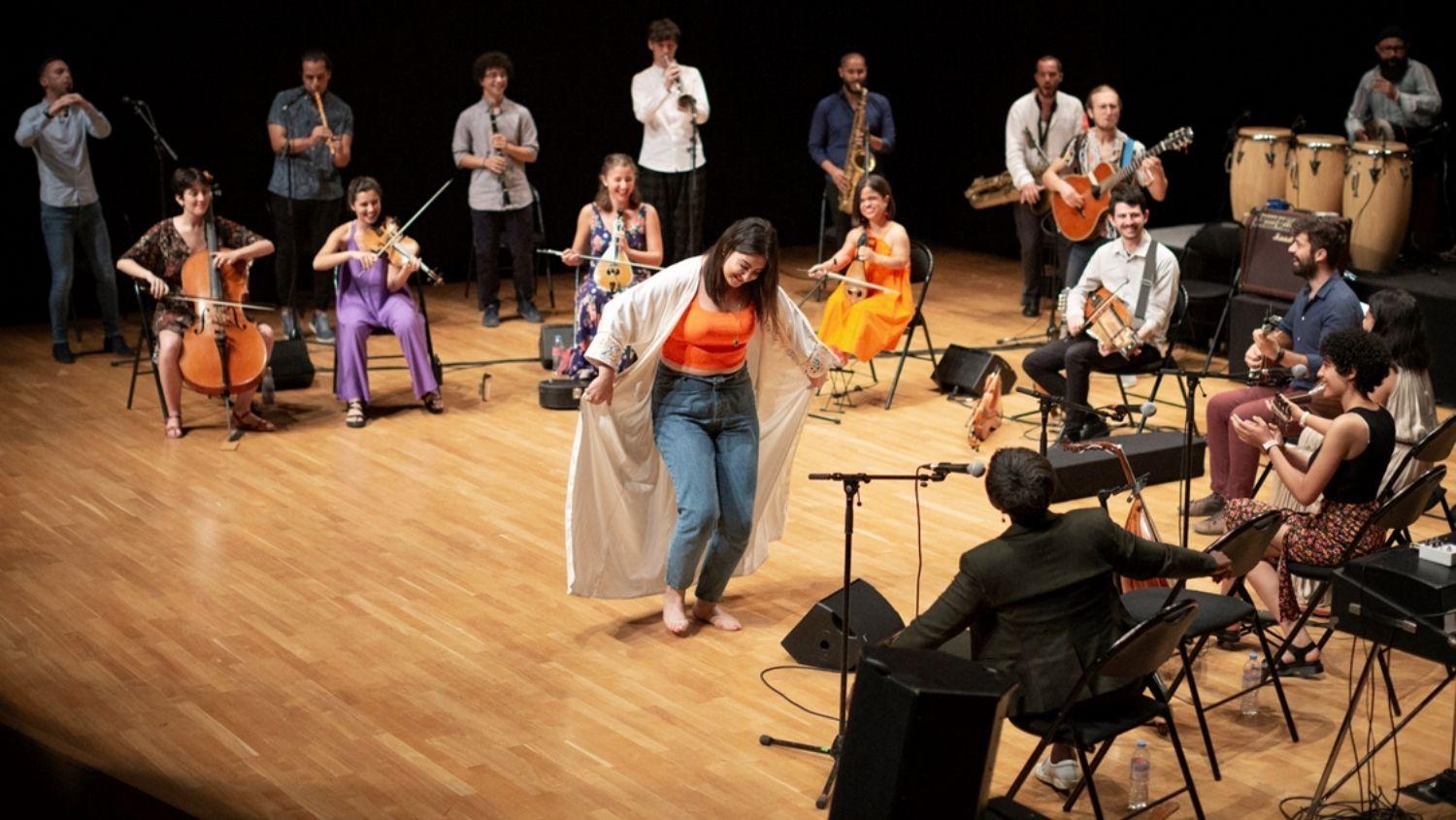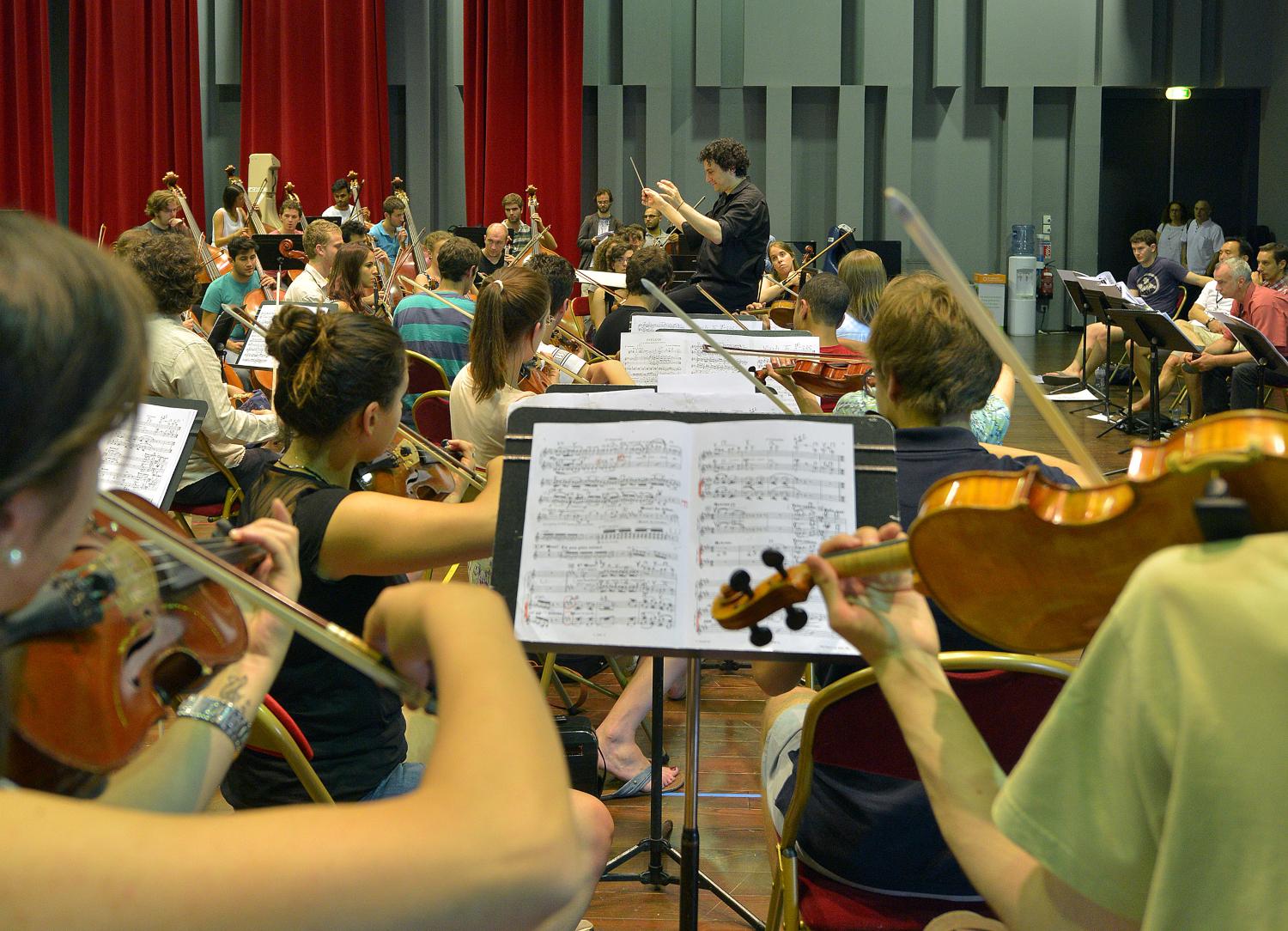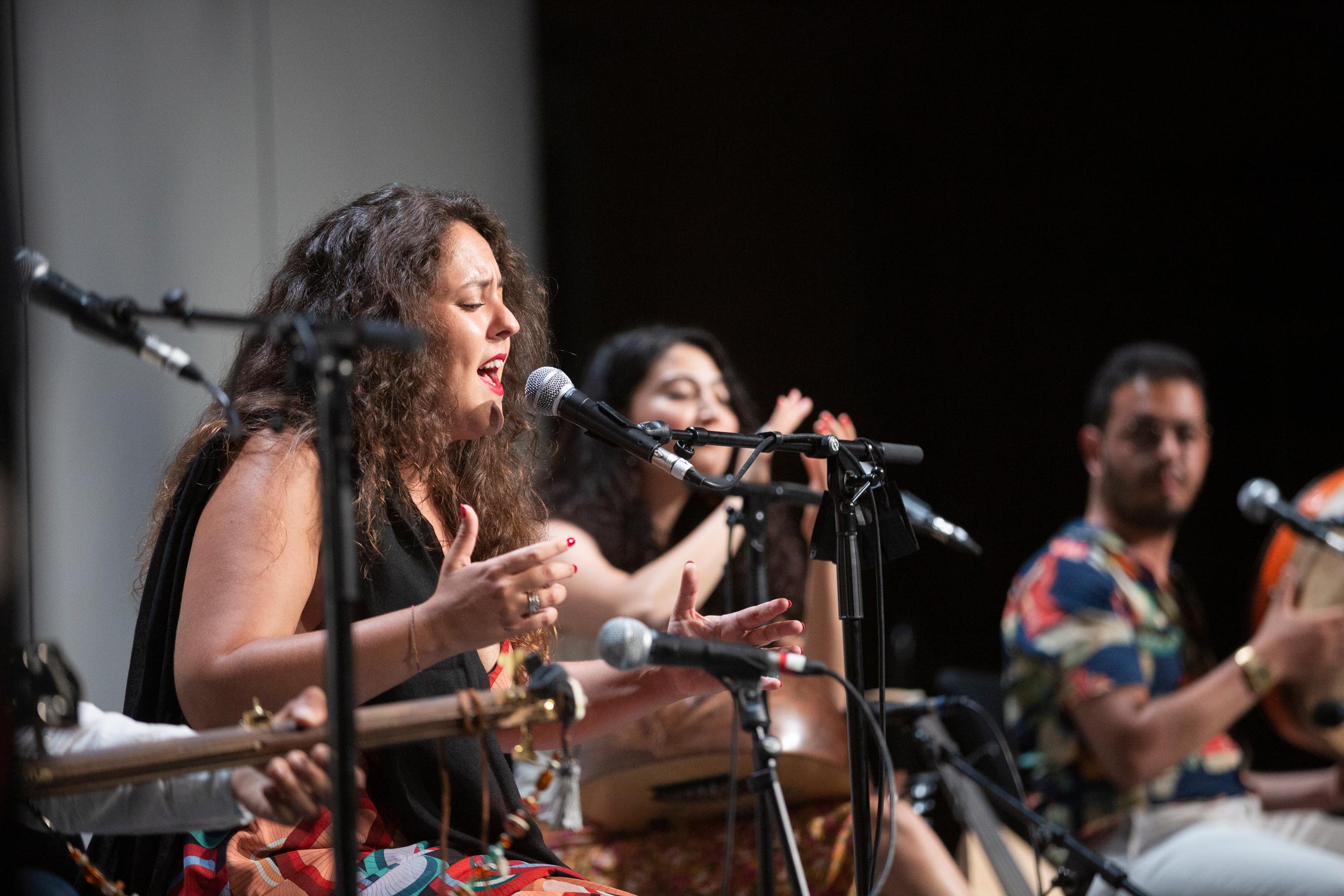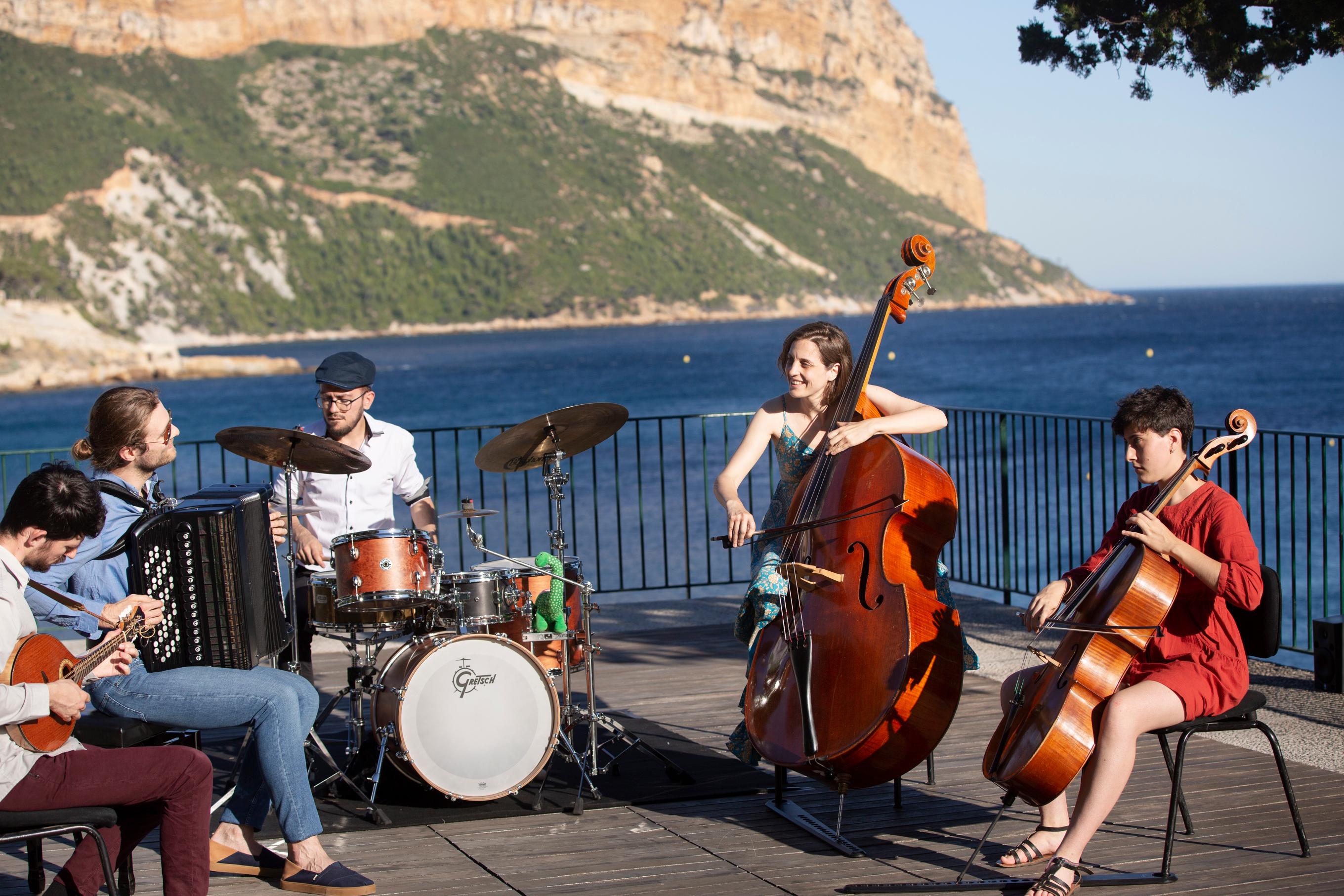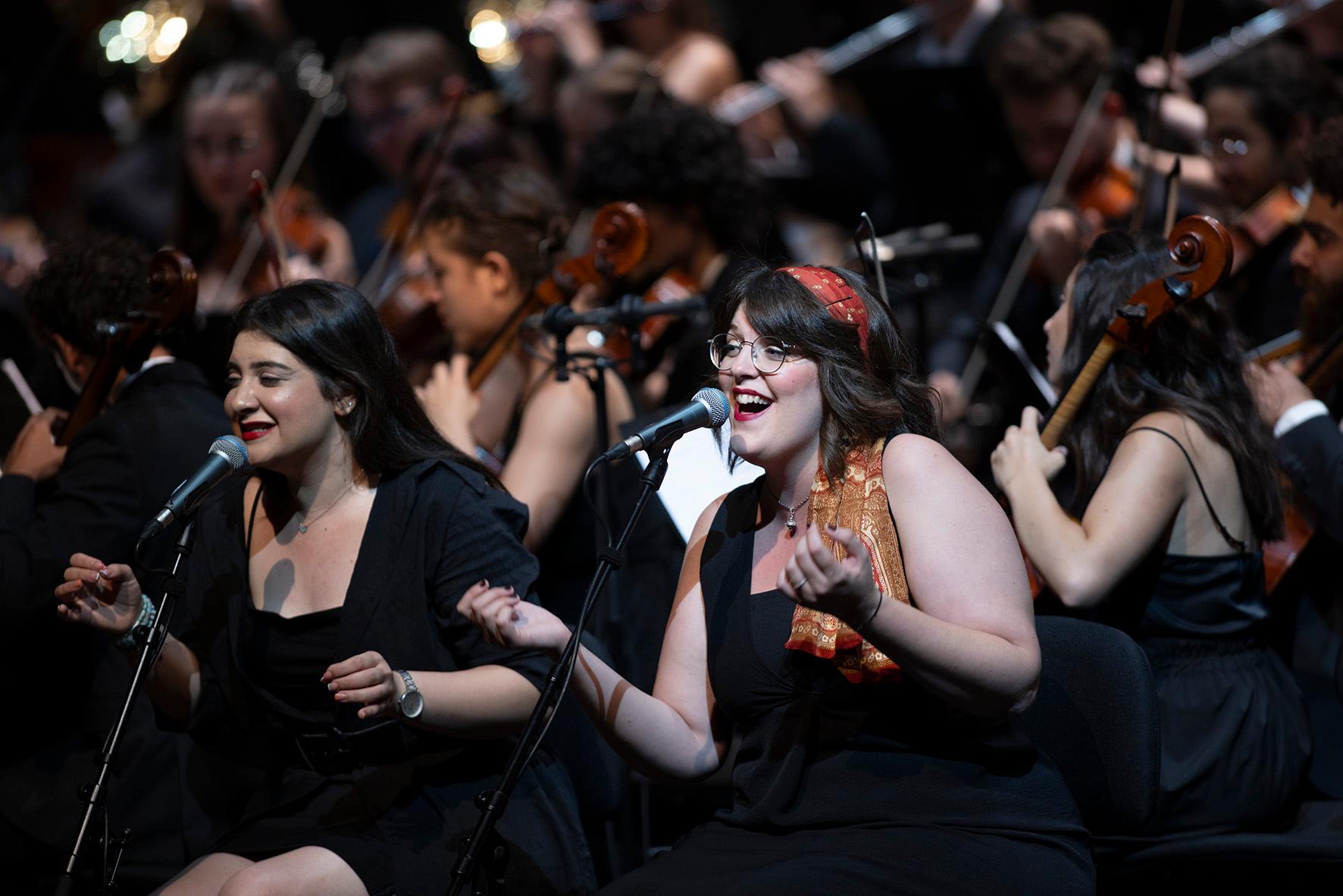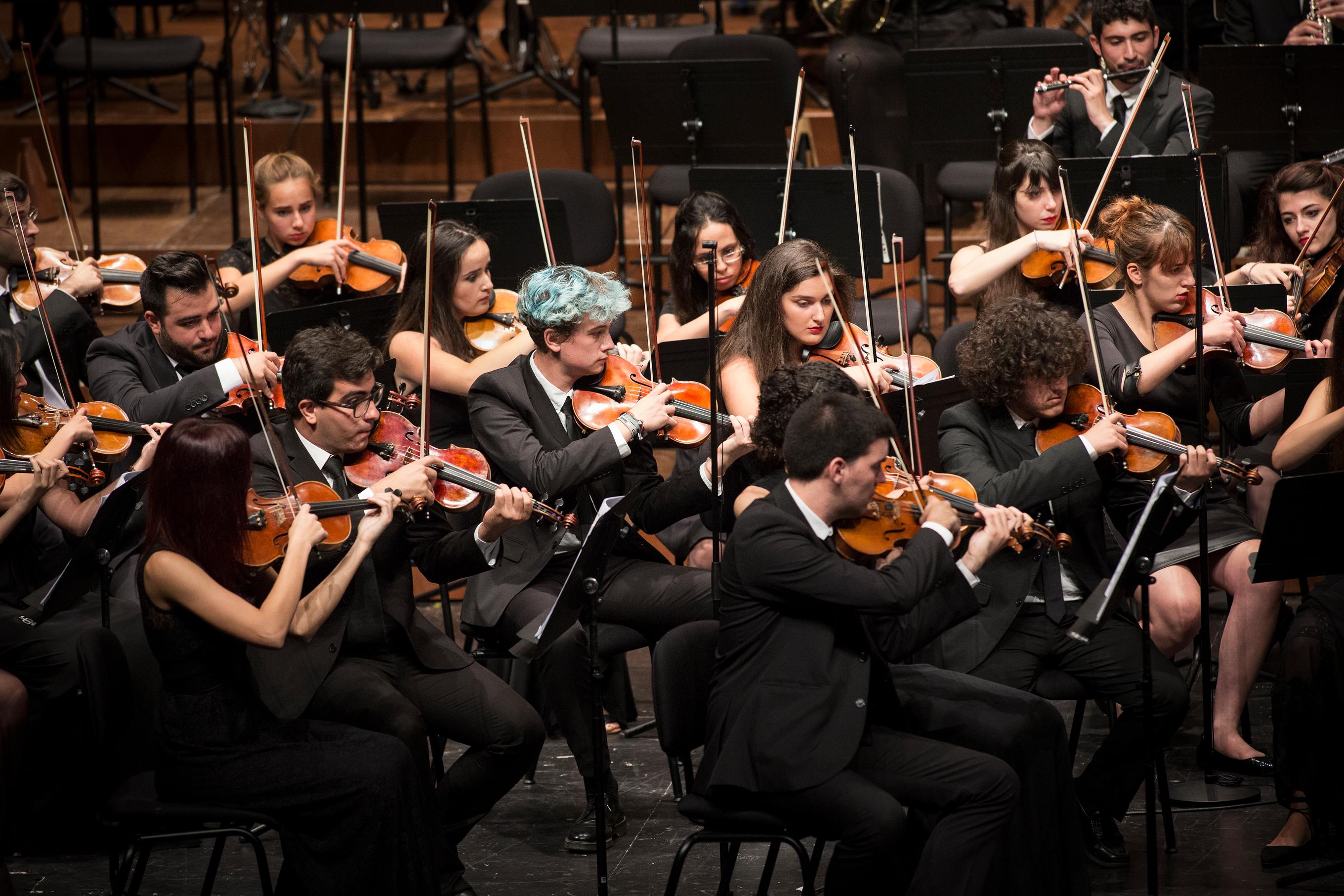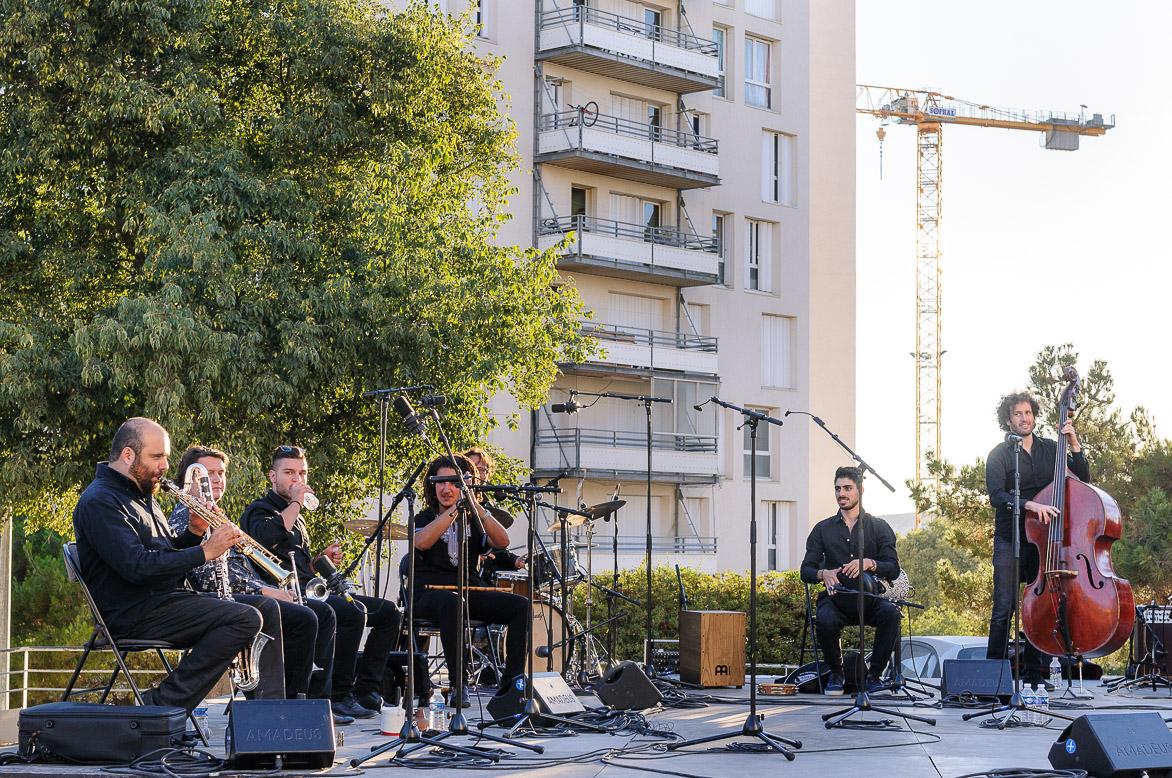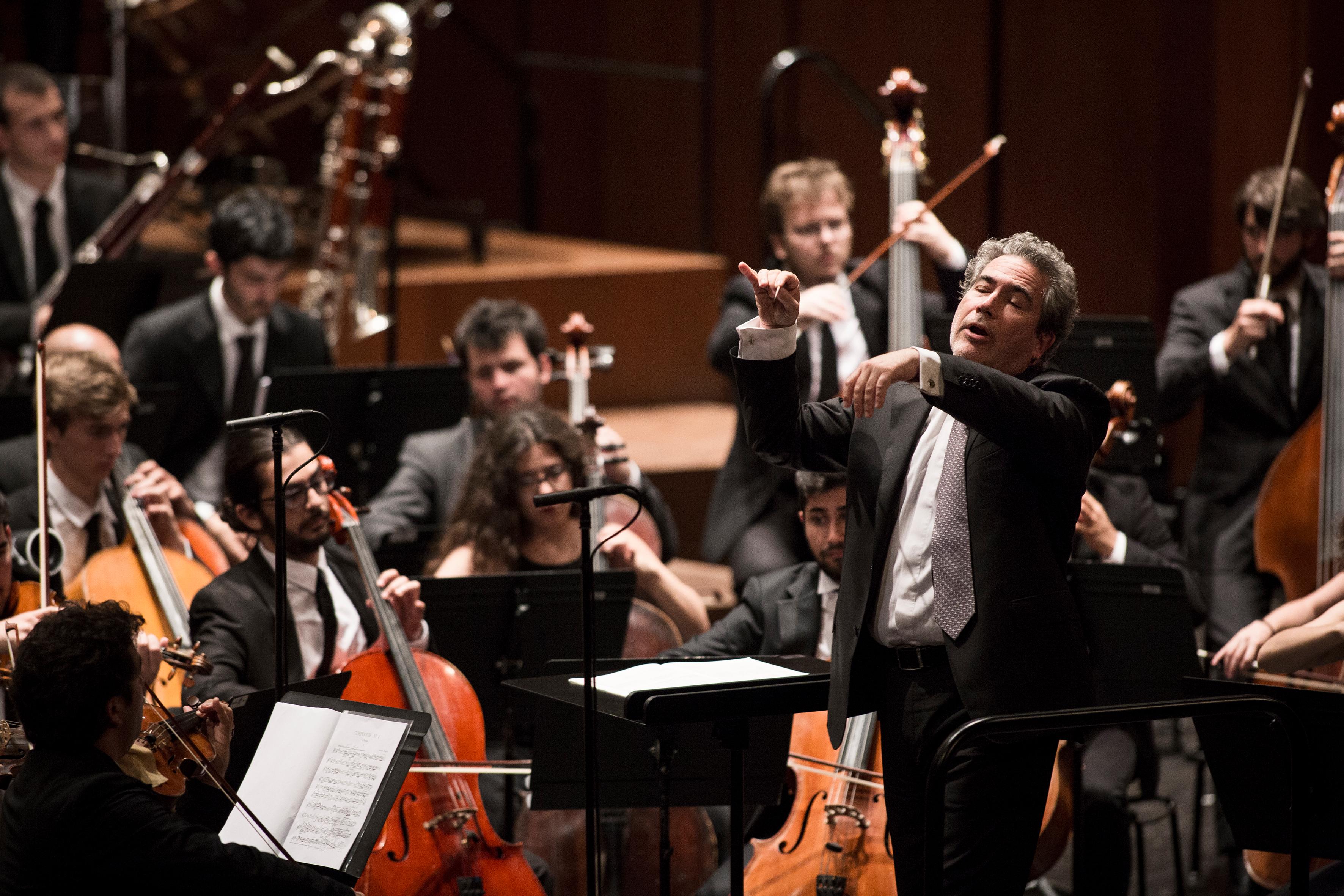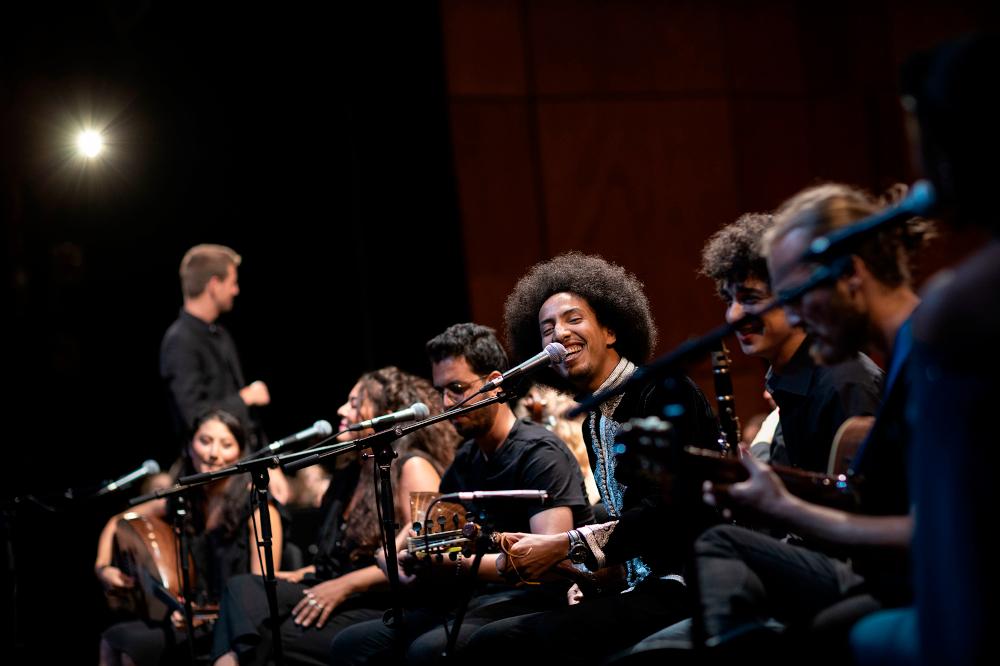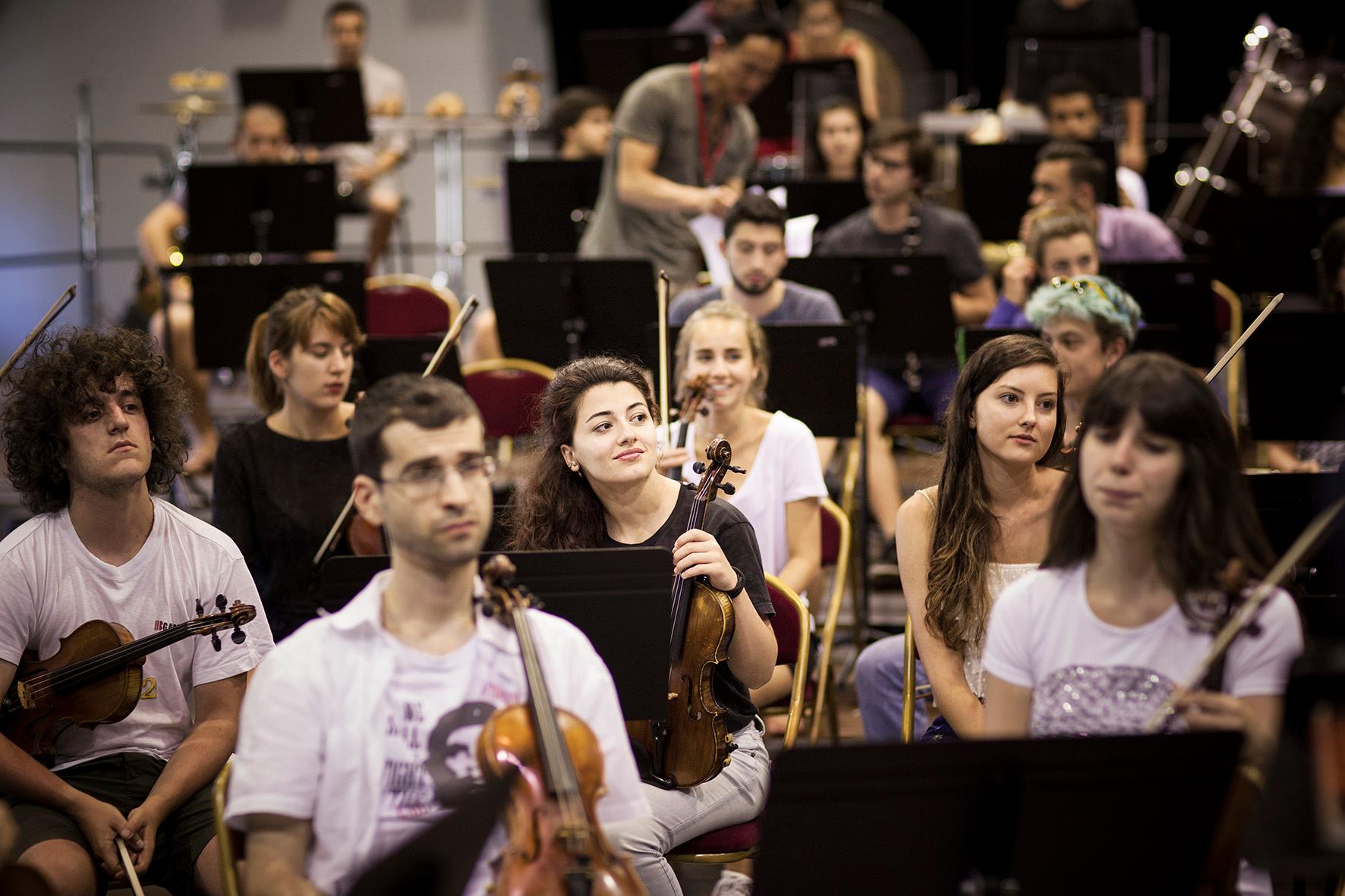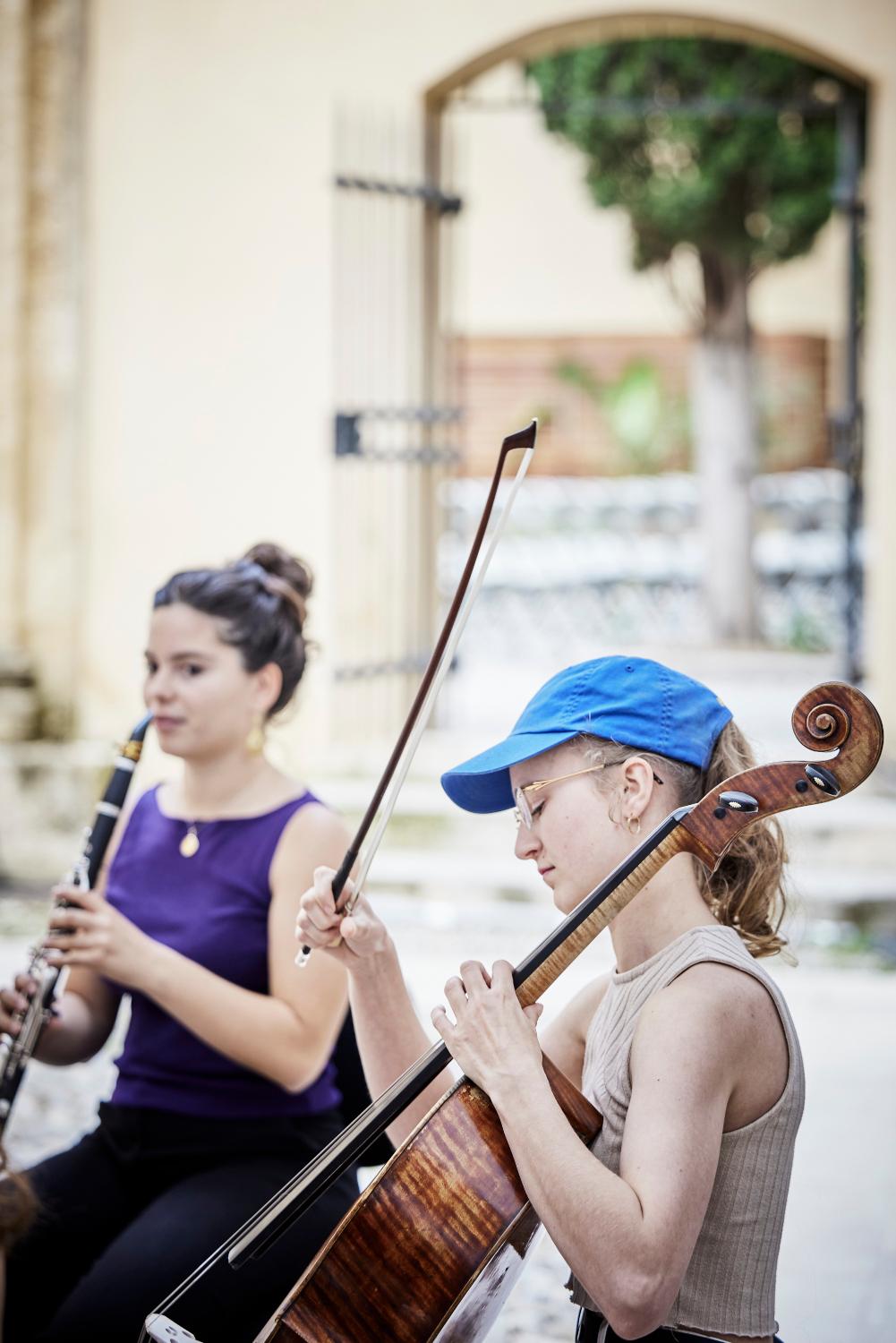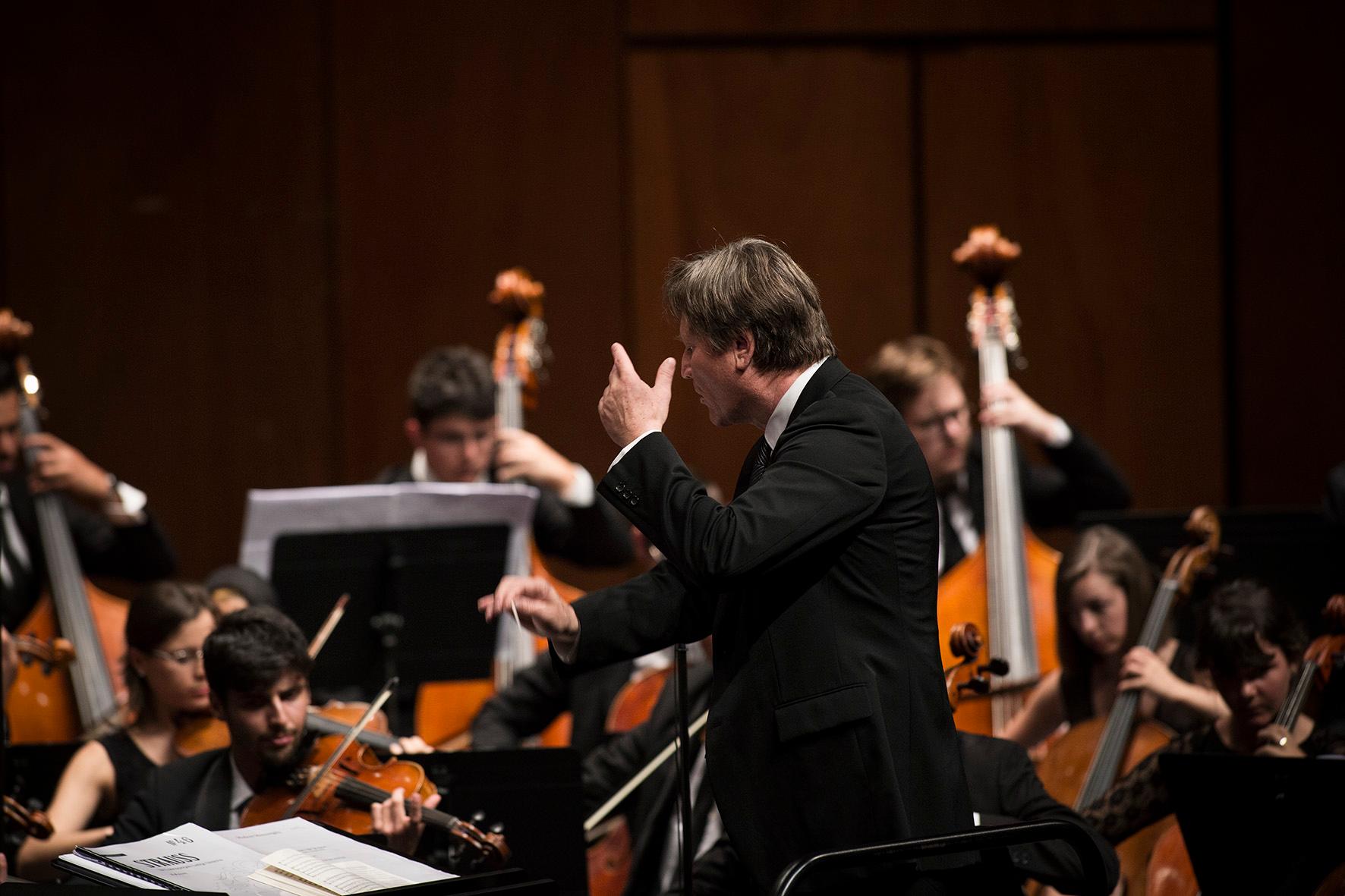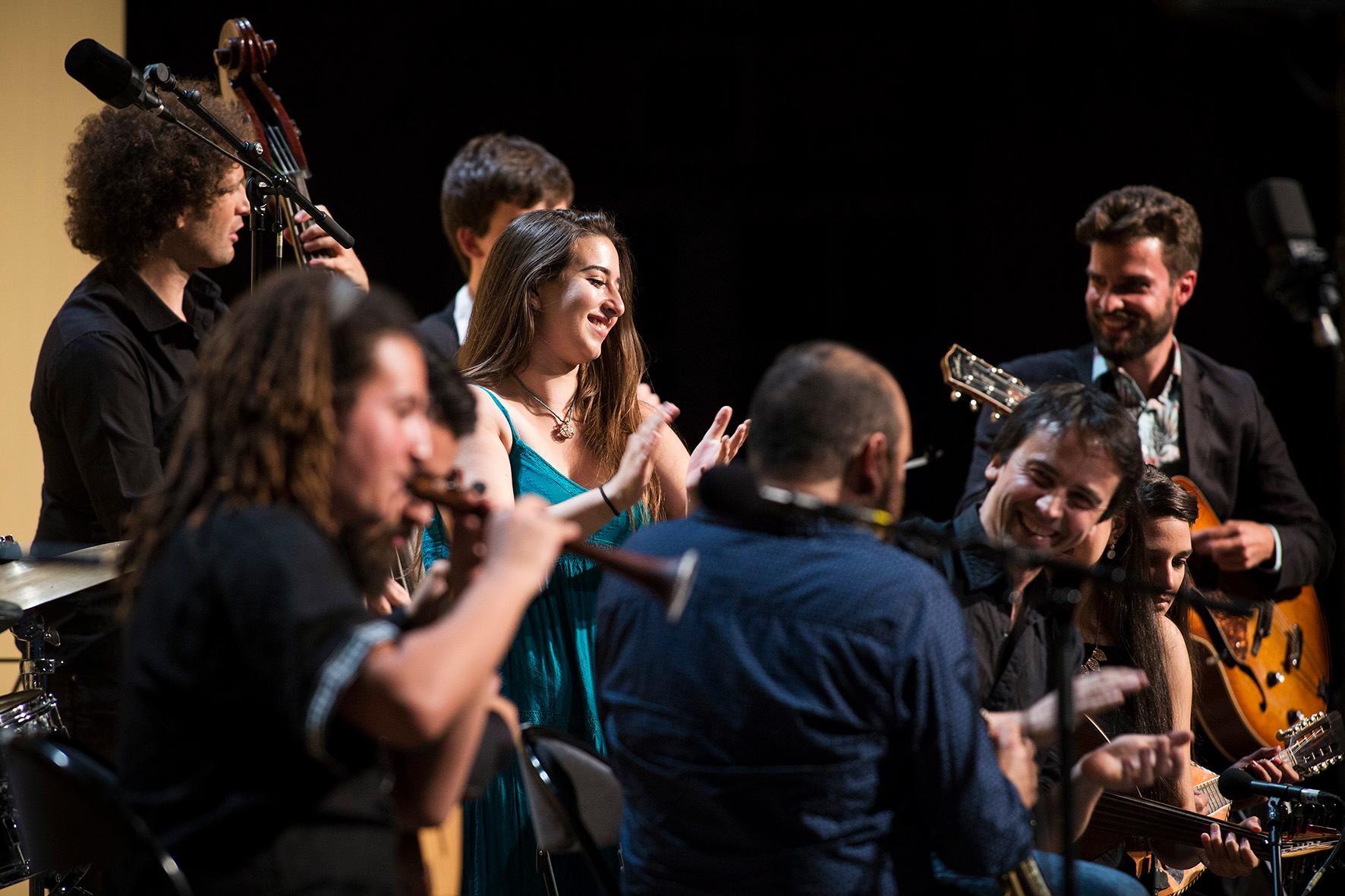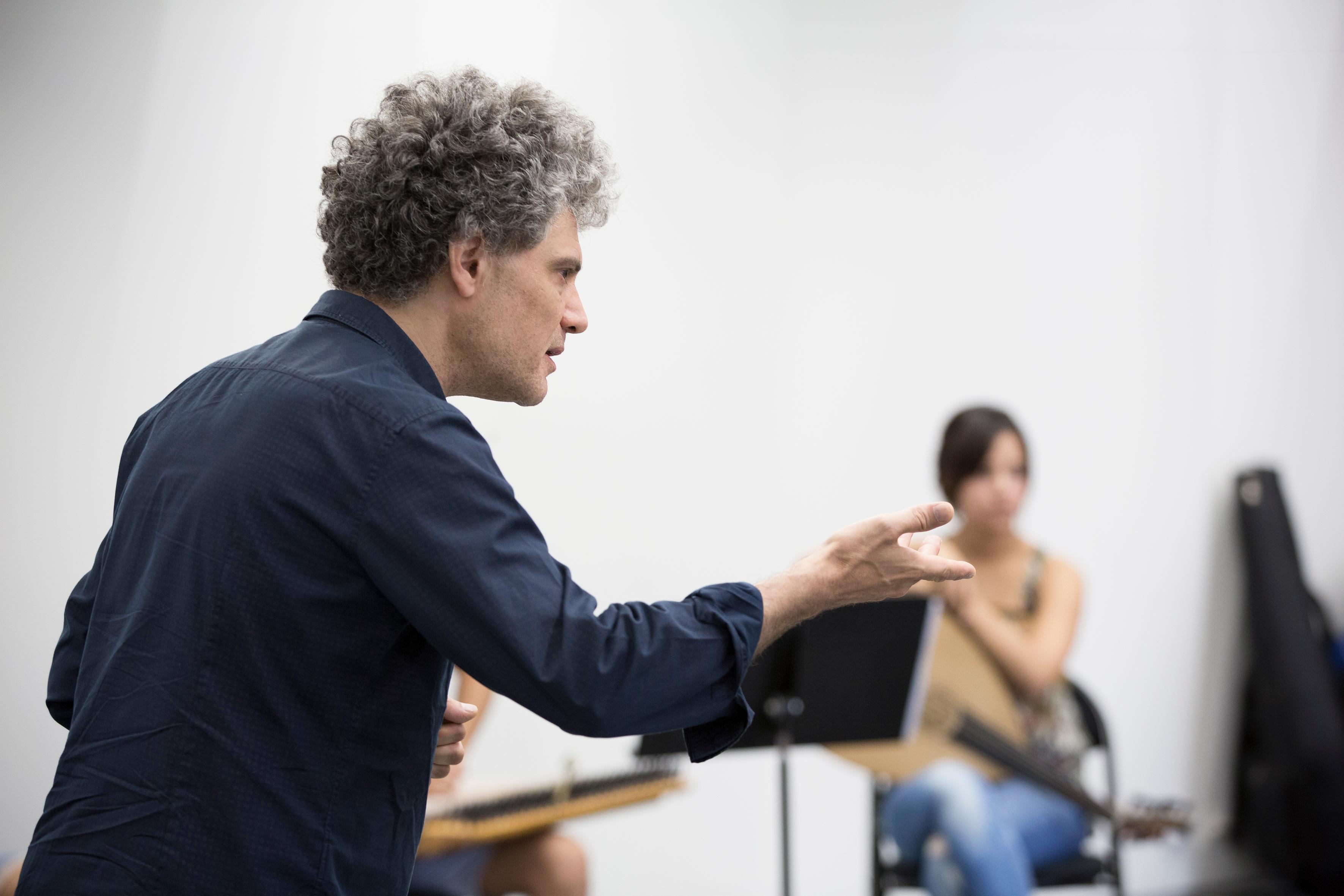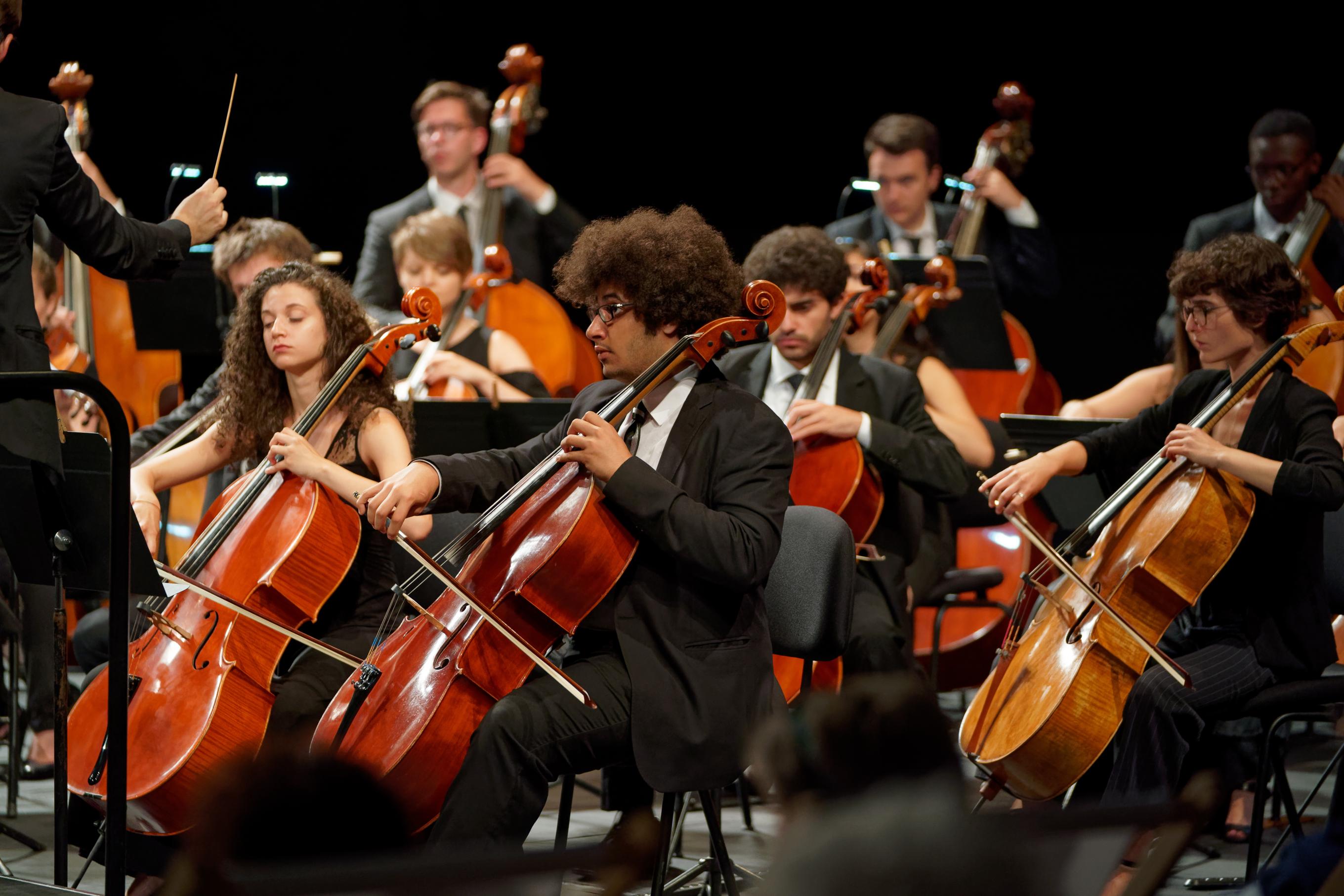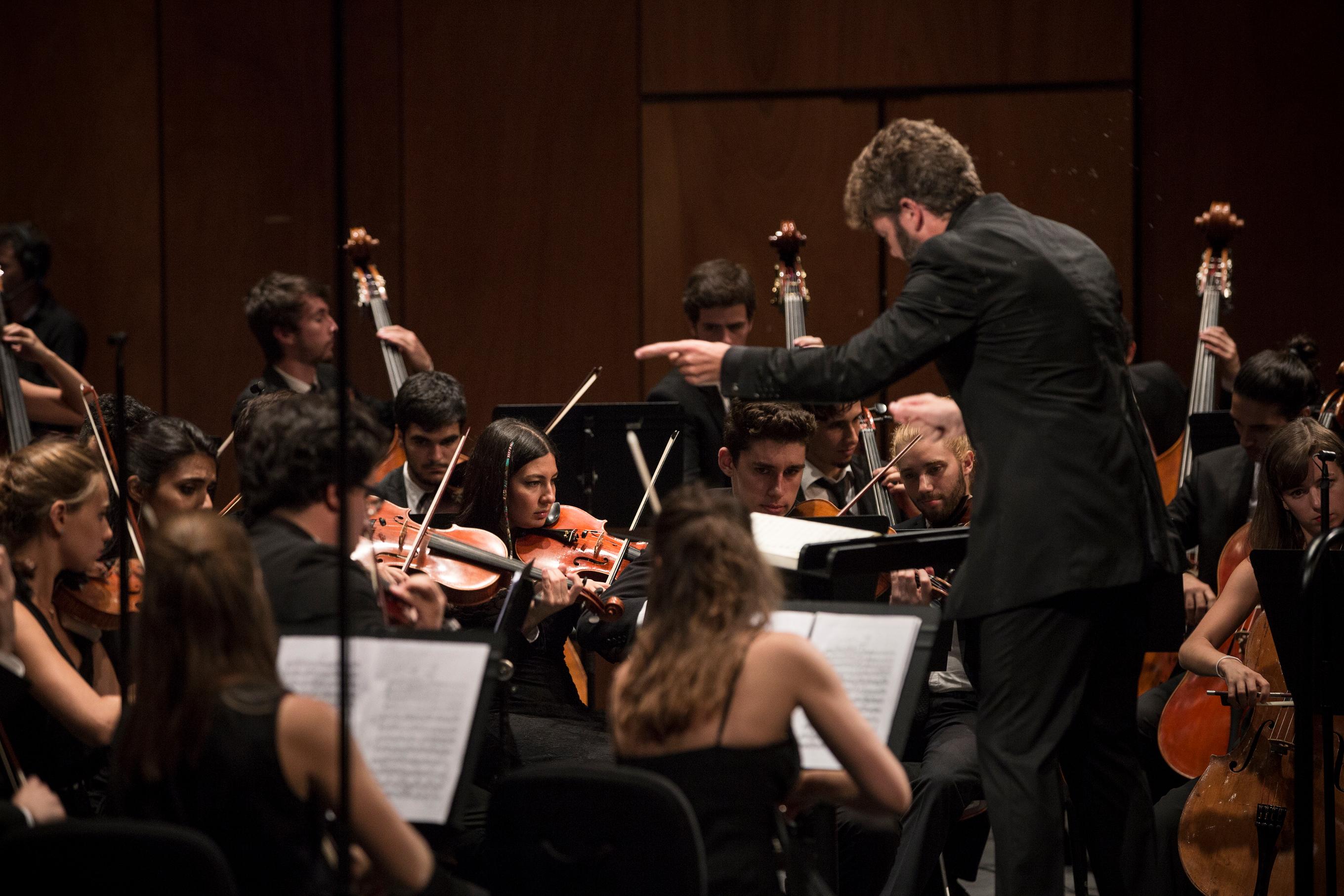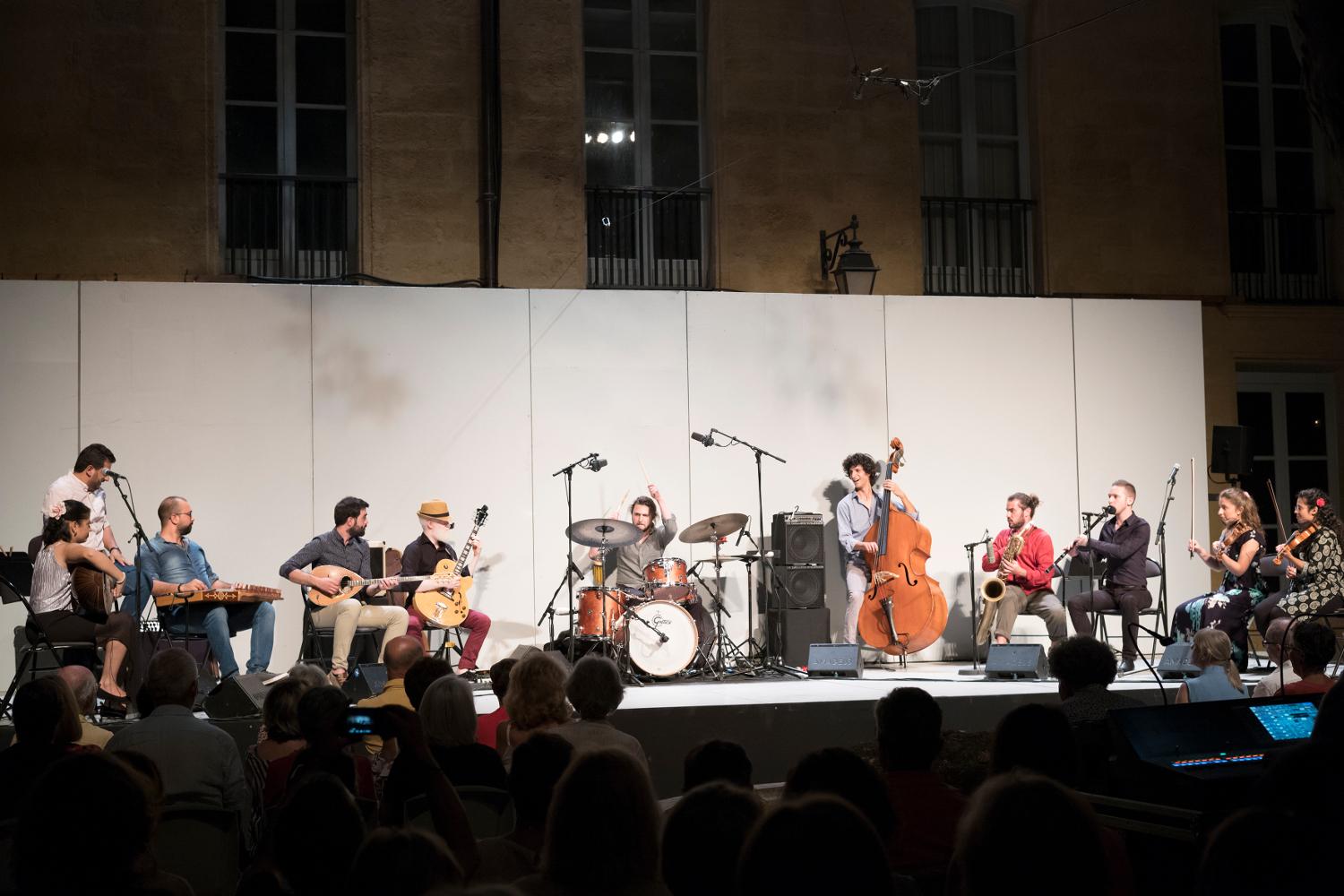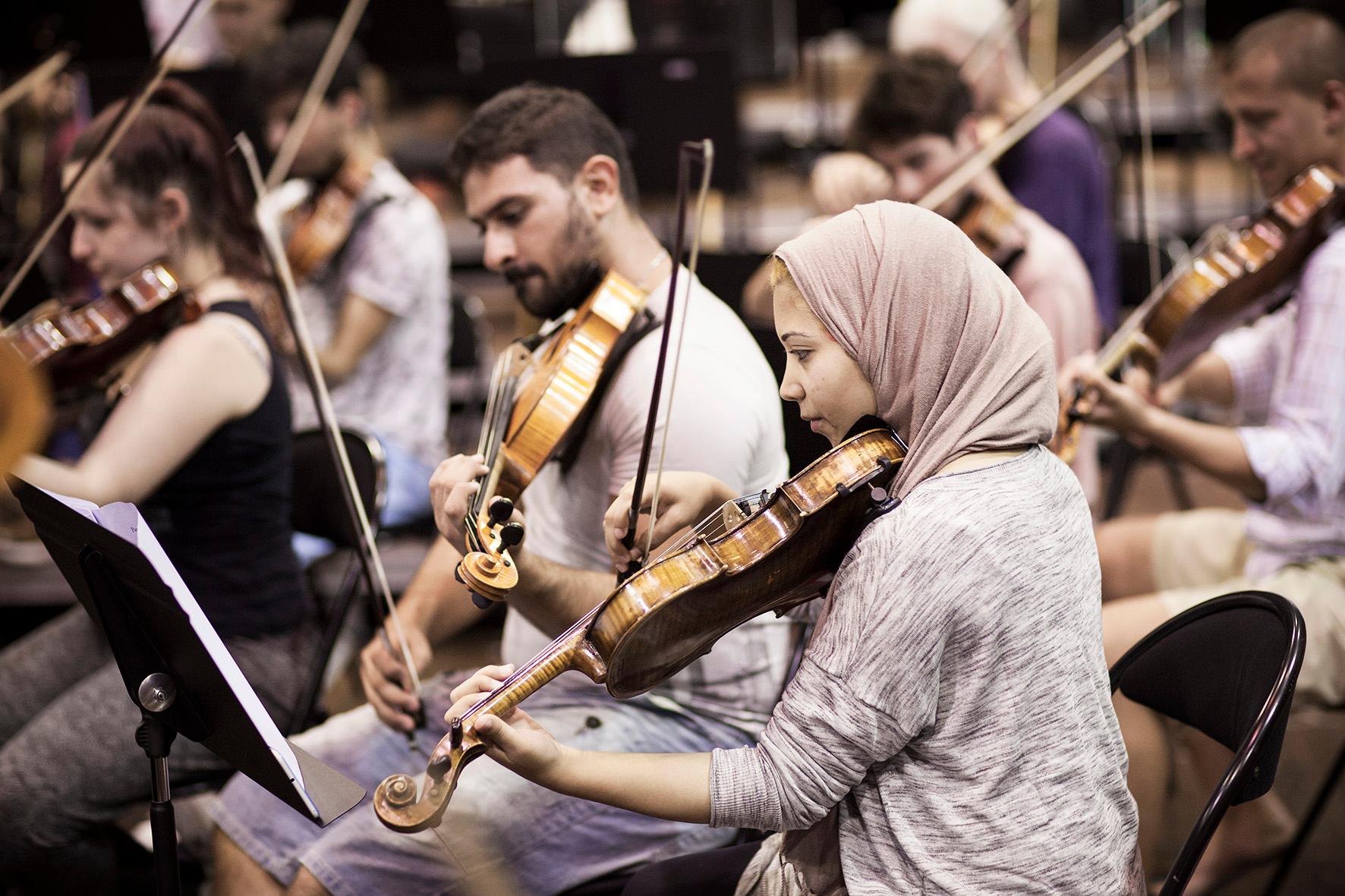40 years of OJM's history
1984 - 1994
1984 - 1994
1984 - 1994
1984 - 1994
The Orchestre des Jeunes de la Méditerranée was created through the initiative of the Provence Alpes Côte d’Azur region, in partnership with the French Ministry of Culture. Following in the footsteps of the French Youth Orchestra (founded in 1982) and the European Union Youth Orchestra (founded in 1983), the OJM strived to embody the principles of cooperation and intercultural dialogue in the Mediterranean, via symphonic orchestral practice by young musicians from the Mediterranean Basin.
Each summer, around one hundred young instrumentalists under the age of 26, who were finishing their studies at one of the major Mediterranean conservatoires, would gather for six weeks. Together, under the artistic direction of conductor Michel Tabachnik, they participated in orchestra classes and prepared concerts and international tours in the Mediterranean region. Workshops with internationally renowned professors completed this high-quality training. The project’s mission to promote training, artistic creation, and the professional integration of the OJM’s artists was further encouraged by the multitude of prospects for intercultural collaboration.
Concert tours in cities throughout the Mediterranean Basin formed the heart of the Orchestre des Jeunes de la Méditerranée’s identity: in 1991 alone, the Orchestra travelled to Jerusalem, Tel Aviv, Marrakech and Cairo, and to Castel Gandolfo to present a private concert for John Paul II in his pontifical residence. The OJM regularly performed on stage at the Théâtre de l’Archevêché in early August, just after the closing of the Festival d’Aix-en-Provence.
During these sessions, the classical symphonic repertoire would alternate with commissioned works by contemporary composers. Among such compositions, those of Iannis Xenakis were undoubtedly the most present in the OJM’s repertoire. The musicians’ diverse origins and the variety of concert venues contributed to the richness of the project and helped ensure its usefulness as a tool of intercultural collaboration for the PACA region. During this period, the Orchestra recorded two vinyl records (in 1985 and 1986) and two compact discs (1989–1990).
In 1994, the OJM celebrated its 10th anniversary and premiered Xenakis’s Mosaïques. A report from the French Ministry of Culture called for the restructuring of the Orchestra’s activities, which it deemed too costly.
1995 - 2000
1995 - 2000
1995 - 2000
1995 - 2000
In 1995, the OJM presented a new project in which musical studies took on a more significant role. In particular, the young instrumentalists were introduced to and trained in organology. The symphonic sessions, led first by Dominique My (1996) and then by Henry Gallois (1997–1998), were scaled down, to accommodate this new focus. In 1998, the OJM’s music education seminar was hosted at the Musica Festival (Strasbourg).
In 1999, the OJM celebrated the 15th anniversary of its inception. To mark the occasion, it organised two tours to new countries (Palestine, Portugal, Malta and Albania). The concert in Gaza on 23 July 1999, shortly after the first meeting between Yasser Arafat and Ehud Barak, illustrated an important part of the Orchestre des Jeunes de la Méditerranée’s core values: the importance of dialogue between peoples, and music’s capacity to promote peace. That same year, the Orchestra launched an international composition competition, which Loredana Arcaro won for Amethyst; the work was then programmed for the 2000 symphonic session.
Over the course of its first 16 summer sessions, the OJM gave more than 170 concerts in 15 countries, and contributed to the training of over 1,000 young musicians from 21 countries around the Mediterranean. It had become a benchmark orchestra at the Euro-Mediterranean level, and was lauded for its collective and orchestral music practice, its high level of musical training, the professional integration of its young instrumentalists, and the dissemination of musical repertoires. The year 2000 was marked by the establishment of a Middle-Eastern music ensemble alongside the symphonic sessions, to promote the historical musical heritage of the Mediterranean and improvisation.
2001 - 2013
2001 - 2013
2001 - 2013
2001 - 2013
Pierre Jacques took over the direction of the OJM with a new team, and implemented a new artistic project that focussed more on creation. The OJM’s symphonic sessions, which included fewer participants than in its early years, became privileged spaces for contemporary music, featuring local partnerships, with, for example, the Musicatreize ensemble, the GMEM and the CIRM (two national centres for musical creation, in Marseille and Nice). During this period, under musical director Roland Hayrabedian, the OJM recorded a CD in Morocco, which was later released by Actes Sud: it was titled Cent noms de l’amour, and included three commissioned pieces by composers Jean-Louis Agobet and Caroline Marçot.
In the summer of 2001, the premiere of Abed Azrié’s The Gospel of John demonstrated the new approach, in which a new work would be commissioned every year for a specifically created ensemble. The ensemble could thus receive training adapted to the project, in a spirit of openness and exchange between different musical traditions. The Gospel of John was performed by the OJM, conducted by Alain Joutard, in 2009, including a tour in Syria, and was released on compact disc by Harmonia Mundi.
The OJM also worked on fostering cooperation in the Mediterranean and on structuring the network of its partners via training residencies in various regions of the Mediterranean Basin; the residencies explored, in particular, the organology of Mediterranean musical instruments, their history, their conservation, and their restoration.
The OJM celebrated its 20th anniversary in 2004. That year’s symphonic session was sponsored by Henri Dutilleux, and was placed under the high patronage of UNESCO, demonstrating the growing relevance of the OJM’S project to promote intercultural dialogue in the Mediterranean.
In 2010, thanks to a new double collaboration with the Festival d’Aix and the London Symphony Orchestra (LSO), the OJM reinstated the large symphonic sessions of its early years.
Between 2010 and 2014, the LSO, in residence at the Festival d’Aix, partnered with the OJM to lead the orchestral practice of the young musicians. The first outreach skills training sessions were also created, and entrusted to Mark Withers.
The next musical directors of the OJM’s Symphonic Session were François-Xavier Roth, followed by Alain Altinoglu, and then Gianandrea Noseda.
In 2013, the OJM actively participated in Marseille–Provence’s yearlong appointment as ‘European Capital of Culture’, through, for example, the creation of a jazz orchestra under the musical direction of Raphaël Imbert, and the premiere of Sira, commissioned from the Tunisian musician Jasser Haj Youssef for his own jazz quartet and for string musicians from the OJM.
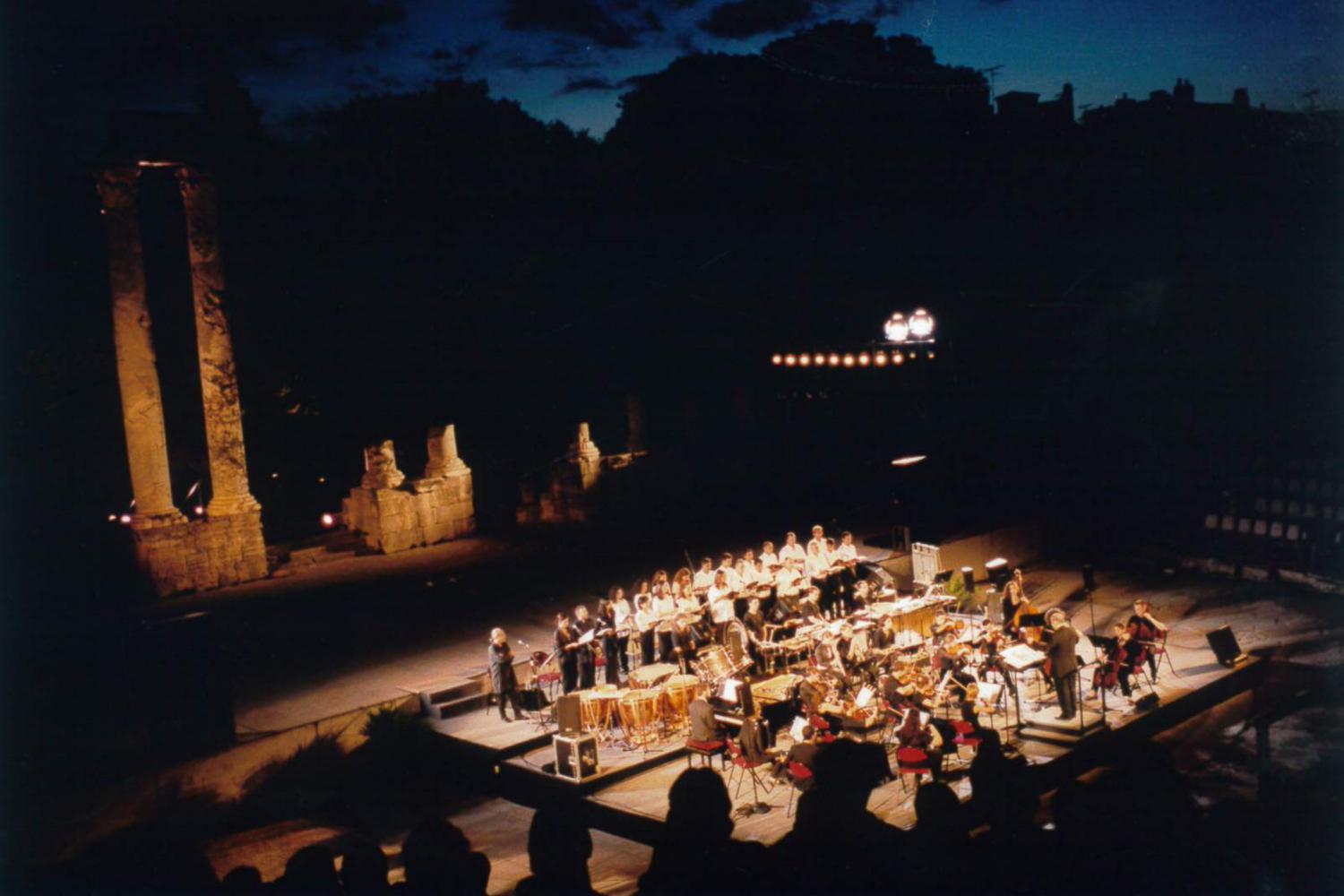
OJM - Abed Azrié et le Chœur Libanais - Arles - 2001
2014 - aujourd'hui
2014 - aujourd'hui
2014 - aujourd'hui
2014 - aujourd'hui
This successful partnership resulted in the official attachment of the OJM to the Festival d’Aix in 2014; the general director of the Festival, Bernard Foccroulle, appointed Emilie Delorme, then director of the Académie du Festival d’Aix, to lead the project.
On the initiative of the Festival d’Aix, the long-standing Mediterranean partners of the OJM came together to structure their own cooperation network, ‘Medinea’ (MEDiterranean INcubator of Emerging Artists). These leaders of educational and cultural organisations from all over the Mediterranean Basin have been united ever since around a manifesto and their common vision in support of the young artists of the OJM.
In 2015, the OJM organised the first Intercultural Creation Session, alongside its historic Symphonic Session, and named Fabrizio Cassol as its first artistic director. The session welcomed both talented successors to the musical cultures of Mediterranean oral tradition and young jazz artists, who composed together, without the use of notation, through orality and memorisation. These sessions have now become an integral part of the OJM’s annual selection of programmes and are developed with the support of all the partners of the Medinea–OJM cooperation network, in Aix and throughout the Mediterranean Basin, thanks to repeated backing by the European Commission.
Sir Simon Rattle directed the OJM for the premiere of the opera The Monster in the Labyrinth, composed by Jonathan Dove, in co-production with the London Symphony Orchestra.
Carlo Rizzi directed the OJM’s Symphonic Session; one of the concerts was held in the Amphitheatre of El Djem, in Tunisia.
From 2016 to 2019, several figures served as musical director of the OJM’s annual Symphonic Sessions: Marko Letonja, who took the OJM on tour to Croatia and Slovenia; Pablo Heras-Casado; Kazushi Ōno; and Daniele Rustioni.
In 2020, Pierre Audi, who had taken over as general director of the Festival d’Aix, named Duncan Ward as the musical director of the OJM’s Symphonic Sessions for four years (with the London Symphony Orchestra still ensuring the mentorship of the young artists), and appointed Pauline Chaigne as deputy director of the OJM and the Mediterranean Programme of the Festival d’Aix.
In 2021, in response to the Covid-19 pandemic, the OJM and its cooperation partners, with the support of the European Commission, developed a fully digital educational programme and produced 37 webinars: together, these elements formed the ‘Medinea on Air’ project. The webinars, which are available online for free at all times, address the challenges young artists face in terms of career development, preparation for competitions and auditions, and the use of digital technology; they also help users gain a deeper understanding of the musical diversity of the Mediterranean.
In 2022–2023, the OJM and Passerelles joined forces with the outreach skills training programme, led by Mark Withers since 2010, to create the first ‘Au Grand Air’ Session. The programme was entrusted to Violaine Fournier, who became the first woman artistic director of any OJM session. Each ‘Au Grand Air’ culminates in the creation of an outdoor musical walking path led by young artists, and hence deepens participants’ connection to their environment and their sense of social responsibility.
For the first time, after eight years of sessions with Fabrizio Cassol, young successors to the diverse musical traditions of the Mediterranean joined the orchestra of the Symphonic Session; collectively they composed one of the works on the Festival concert programme. With such a unique and tailor-made repertoire, the OJM challenges the conventional boundaries of an orchestra, through the expression of its composite Mediterranean cultural identity and the interweaving of musical aesthetics that have seldom been explored together.
The year 2024 marks the 40th anniversary of the founding of the OJM and the 10th anniversary of its integration into the Festival d’Aix-en-Provence.
For this special occasion, Fabrizio Cassol has gathered 15 young artists from his previous sessions for an exceptional musical creation. Mark Withers and Violaine Fournier will embark together on a unique Session, uniting for the first time the musical expression of local audiences and that of the young artists of the OJM, for Aix en juin. The conductor Evan Rogister will be the musical director of this historic Symphonic Session of the Orchestre des Jeunes de la Méditerranée. Undeniably, the OJM’s Symphonic Sessions are on a path to a ‘New World’, and remain committed to intercultural dialogue and the rapprochement of cultures in the Mediterranean, thus contributing in an evermore vital way towards peace.
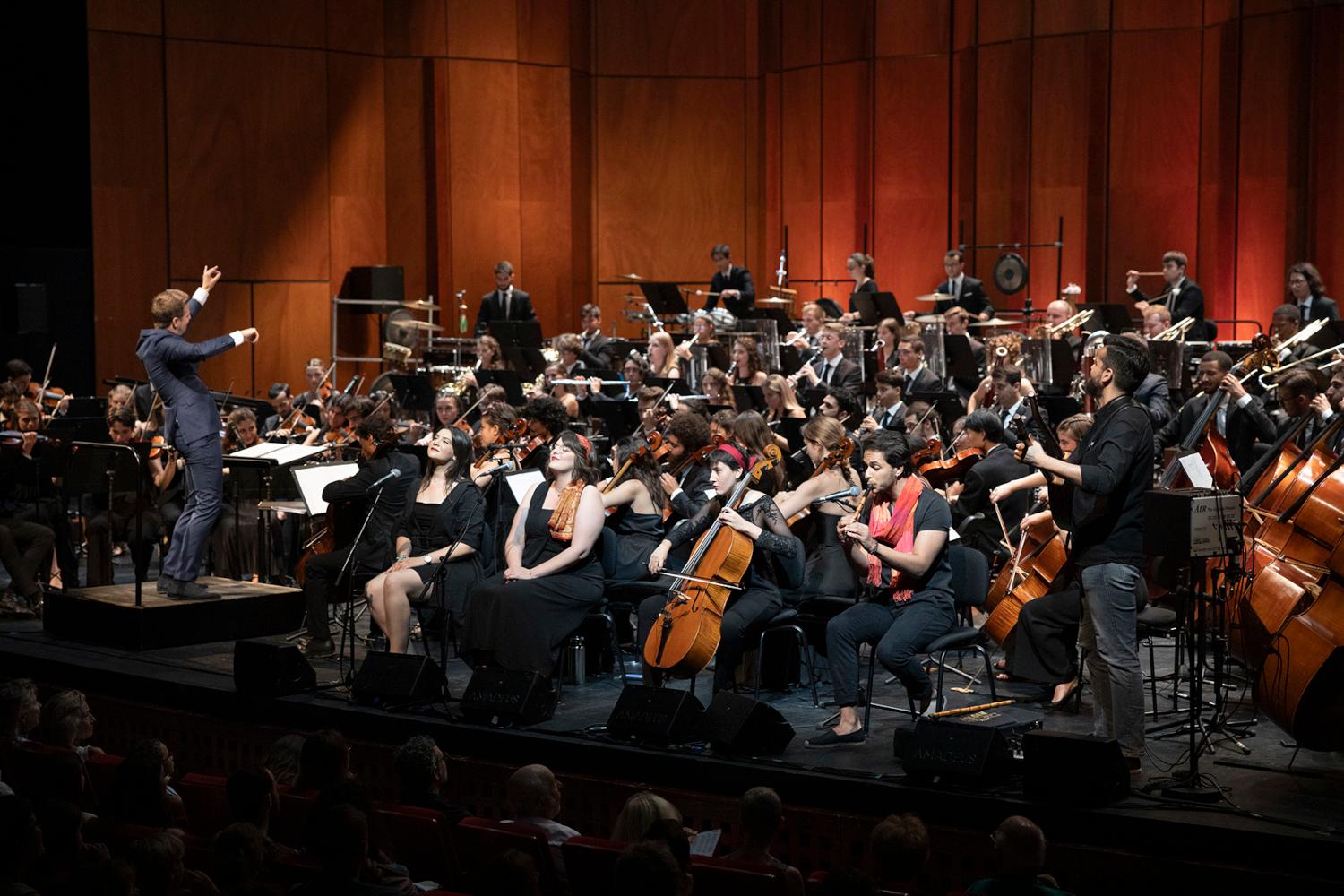
Orchestre des Jeunes de la Méditerranée - 2023 © Vincent Beaume


